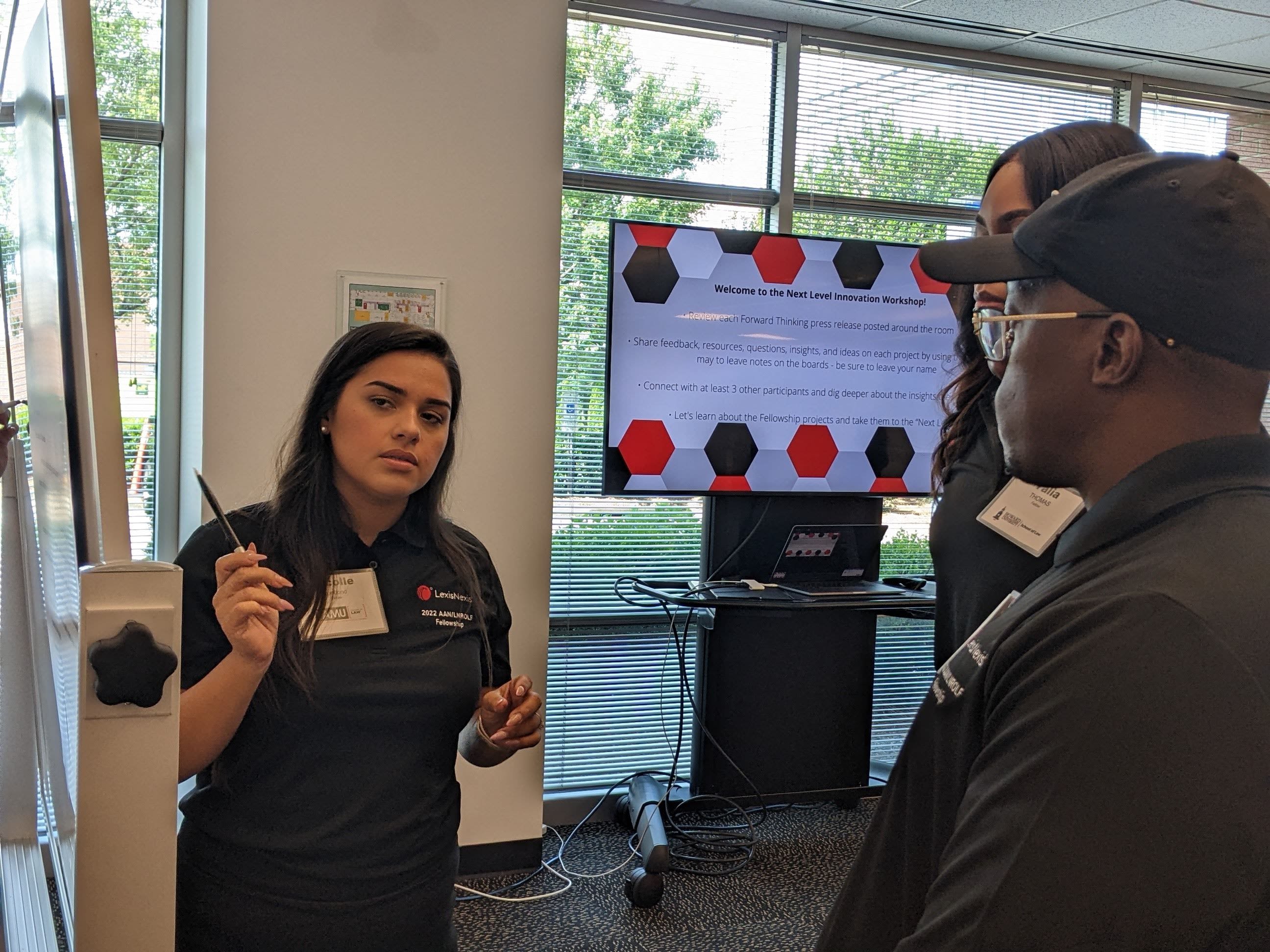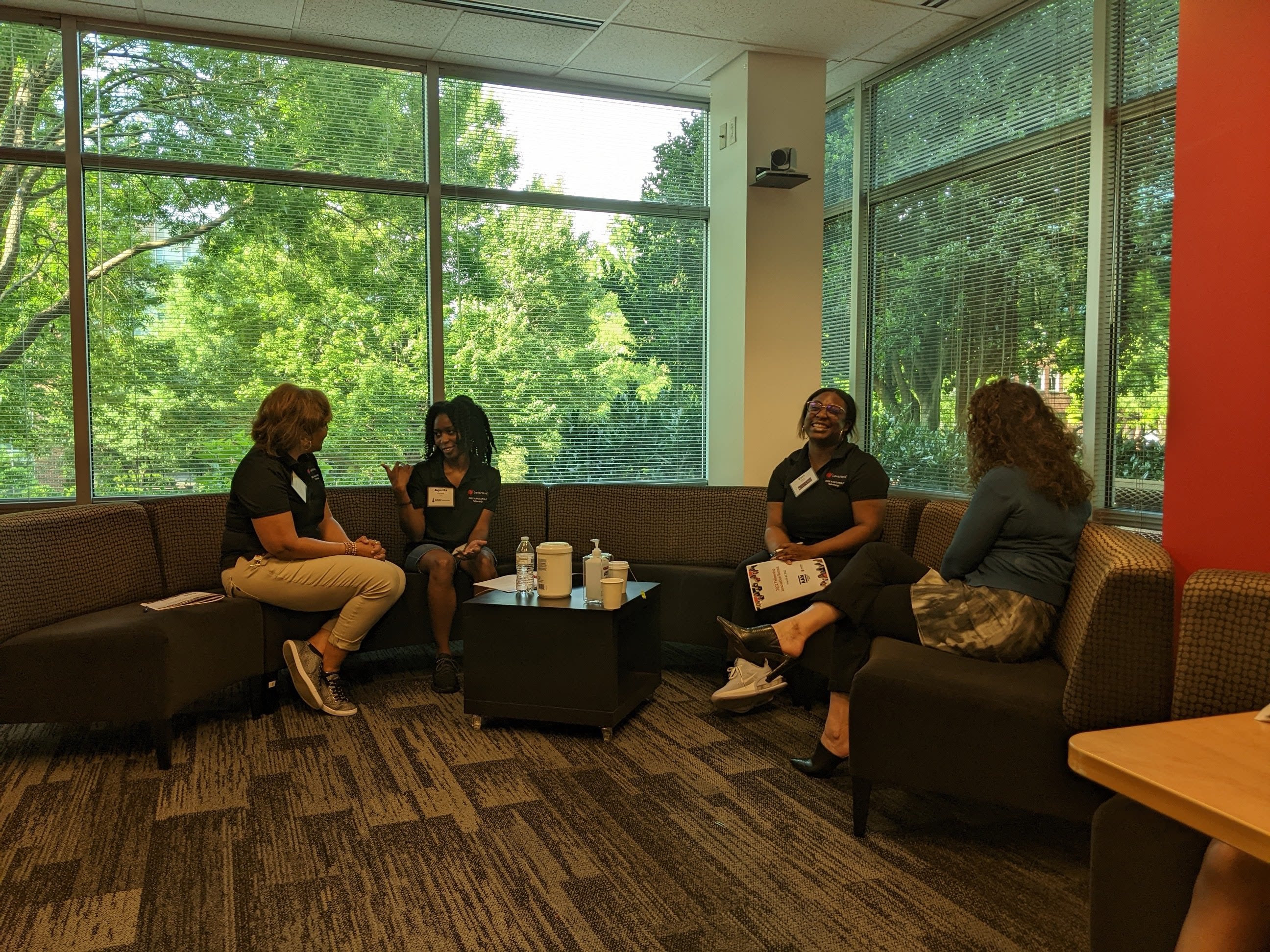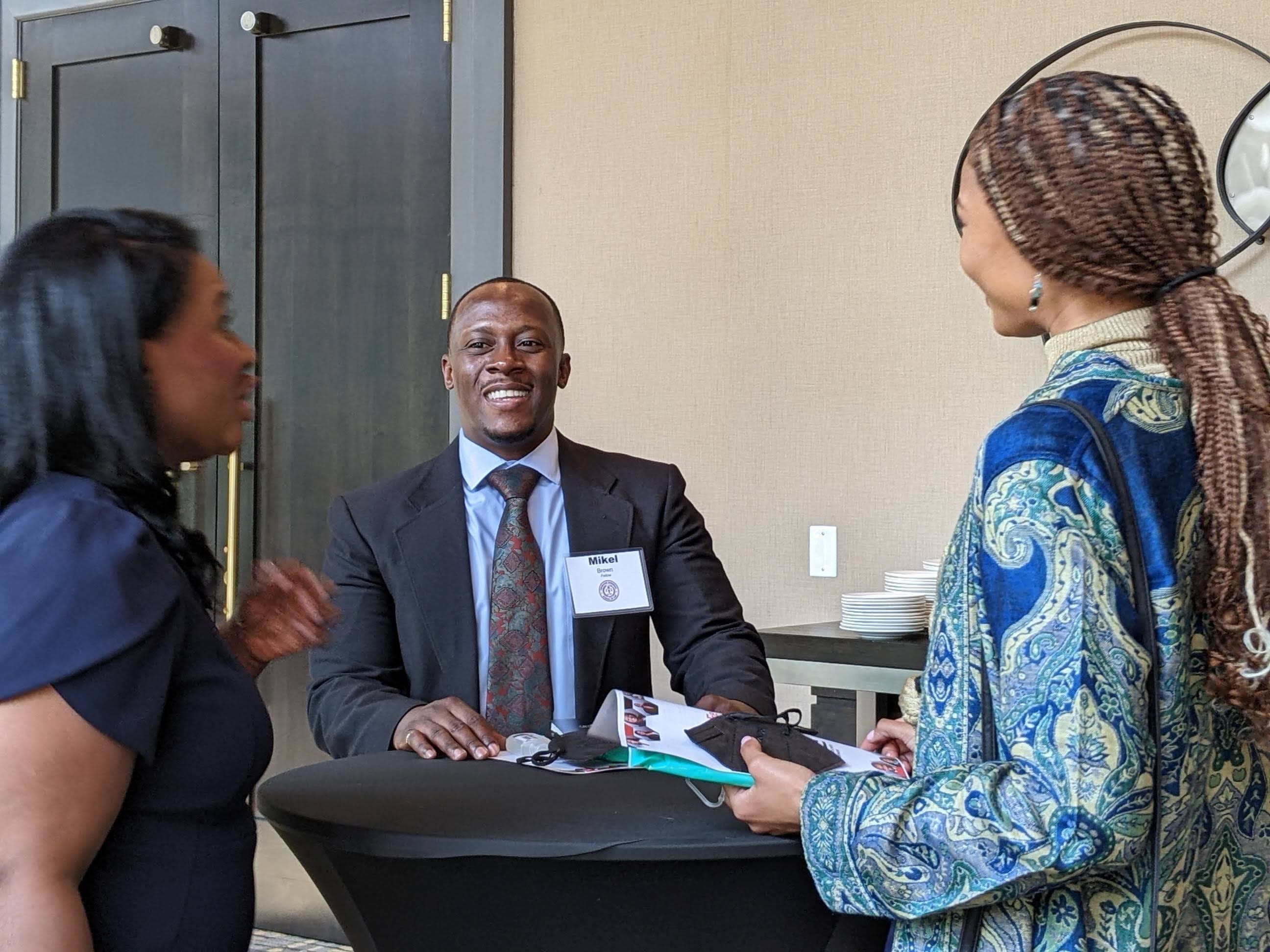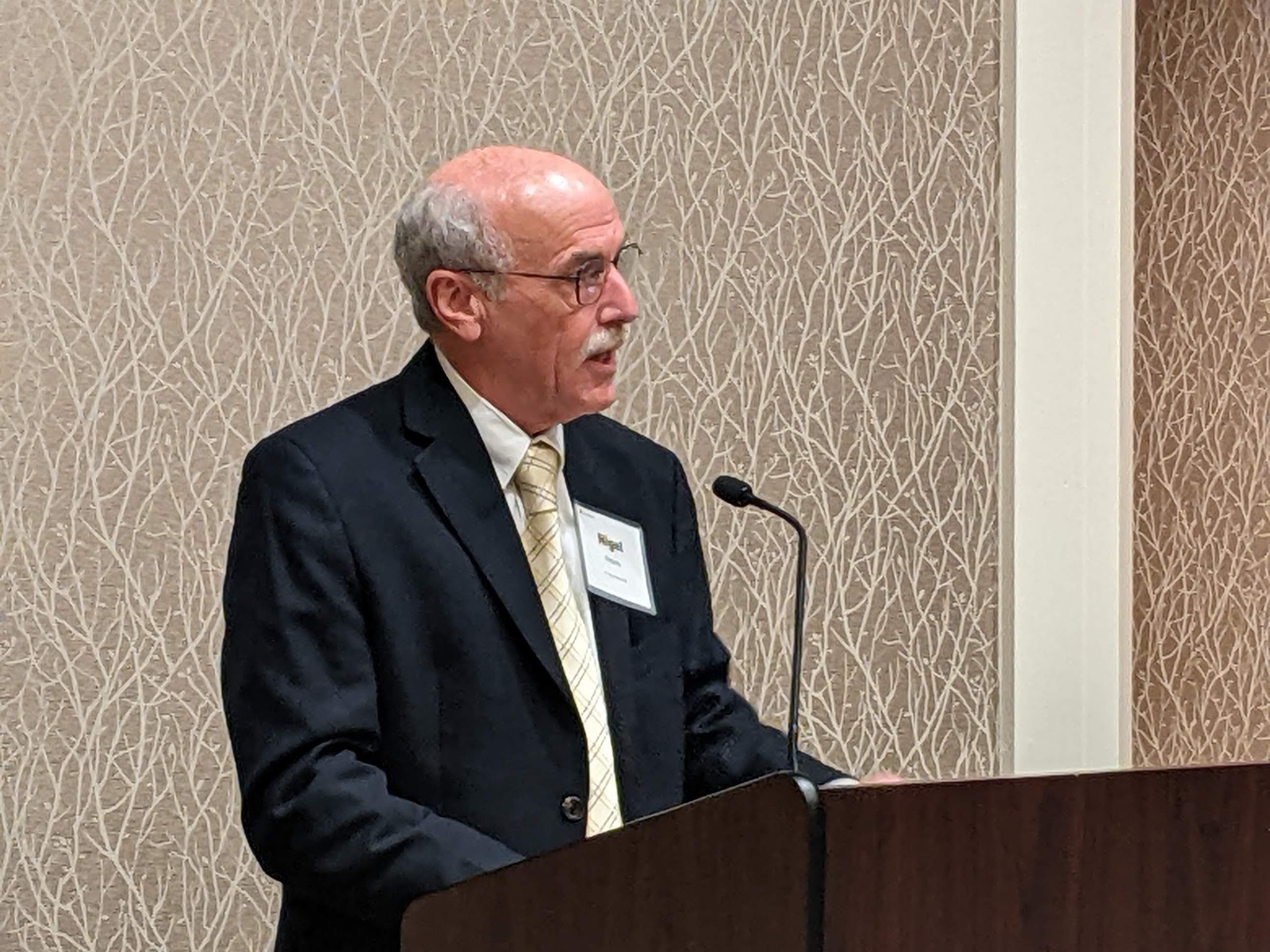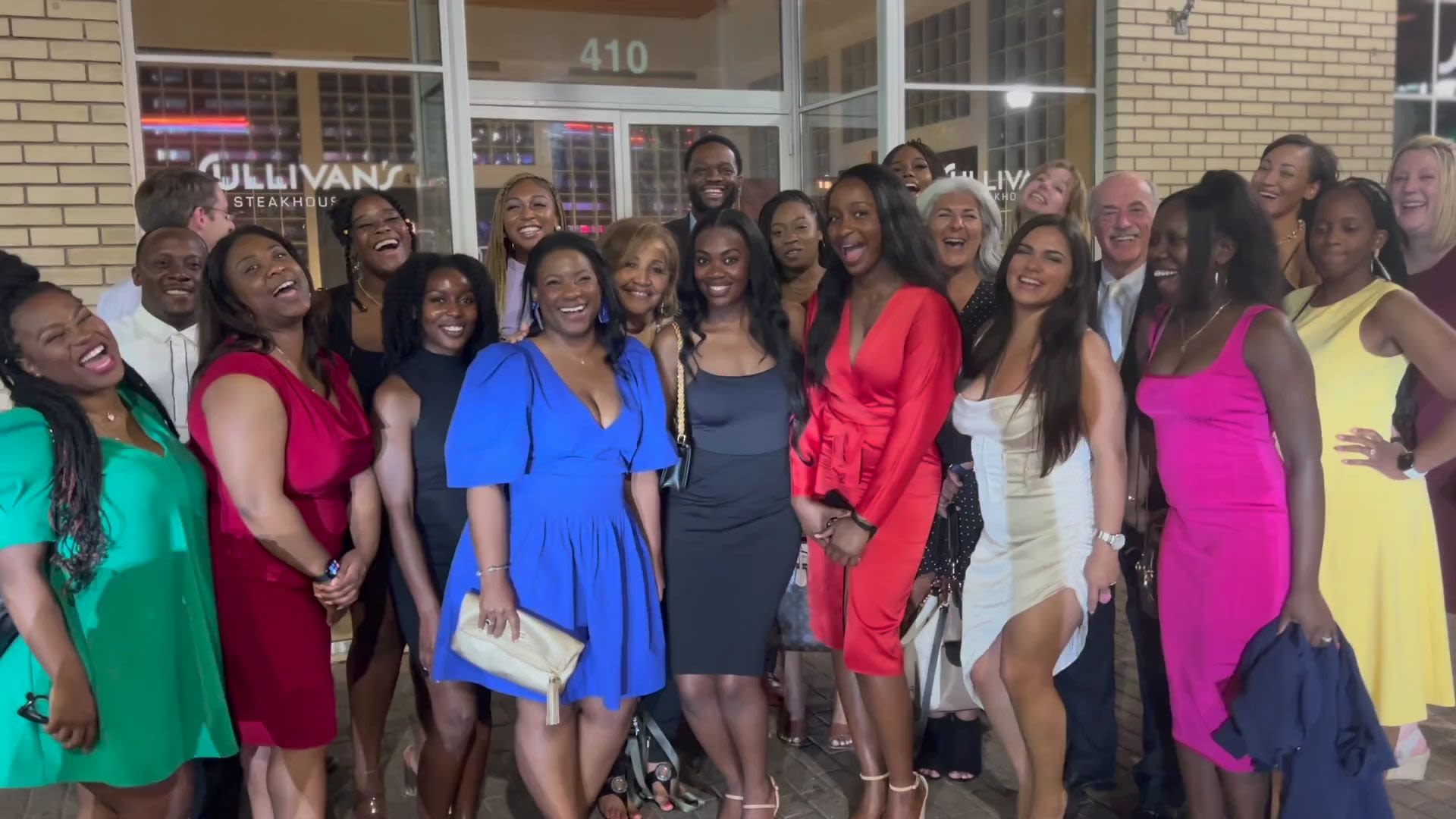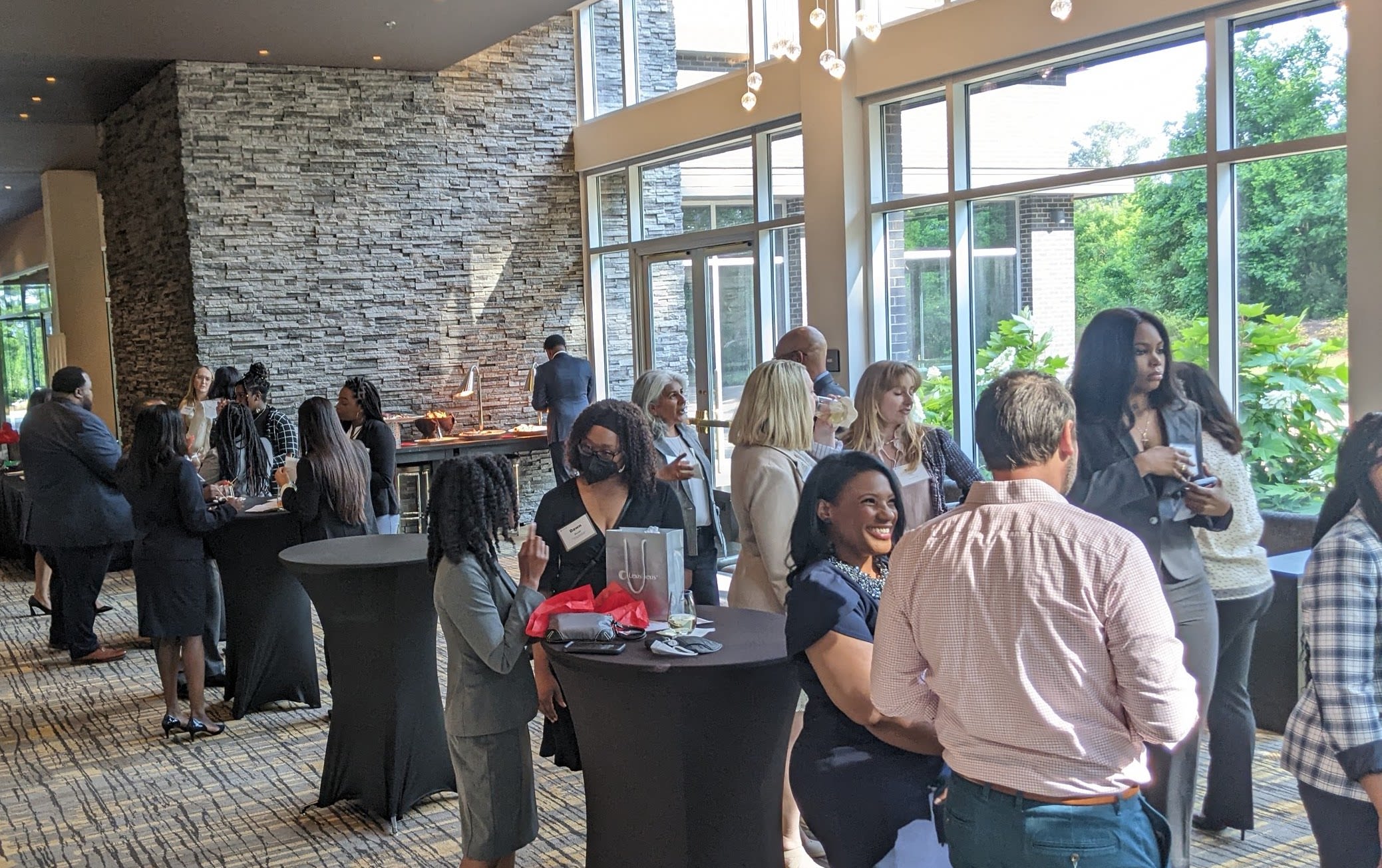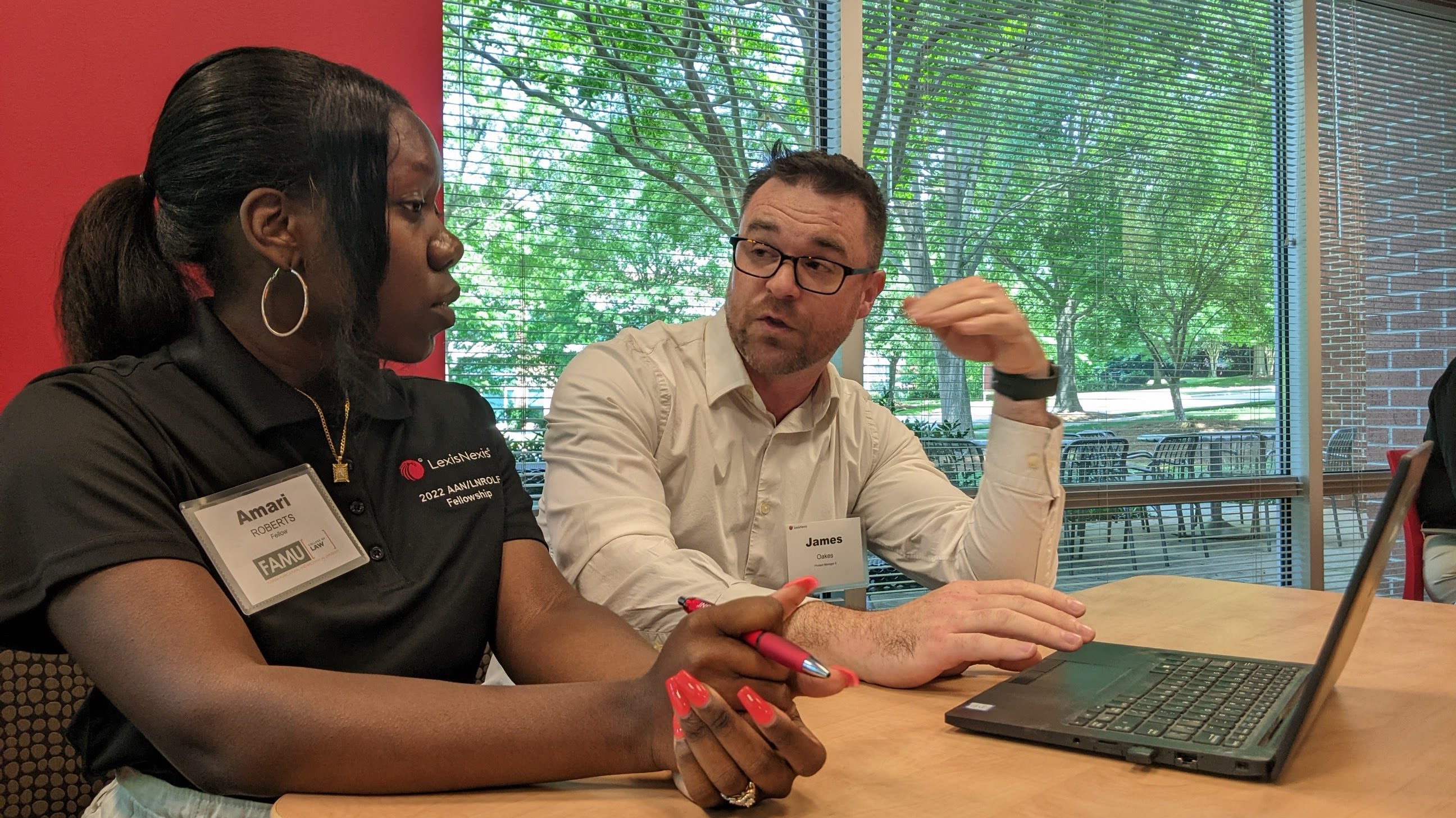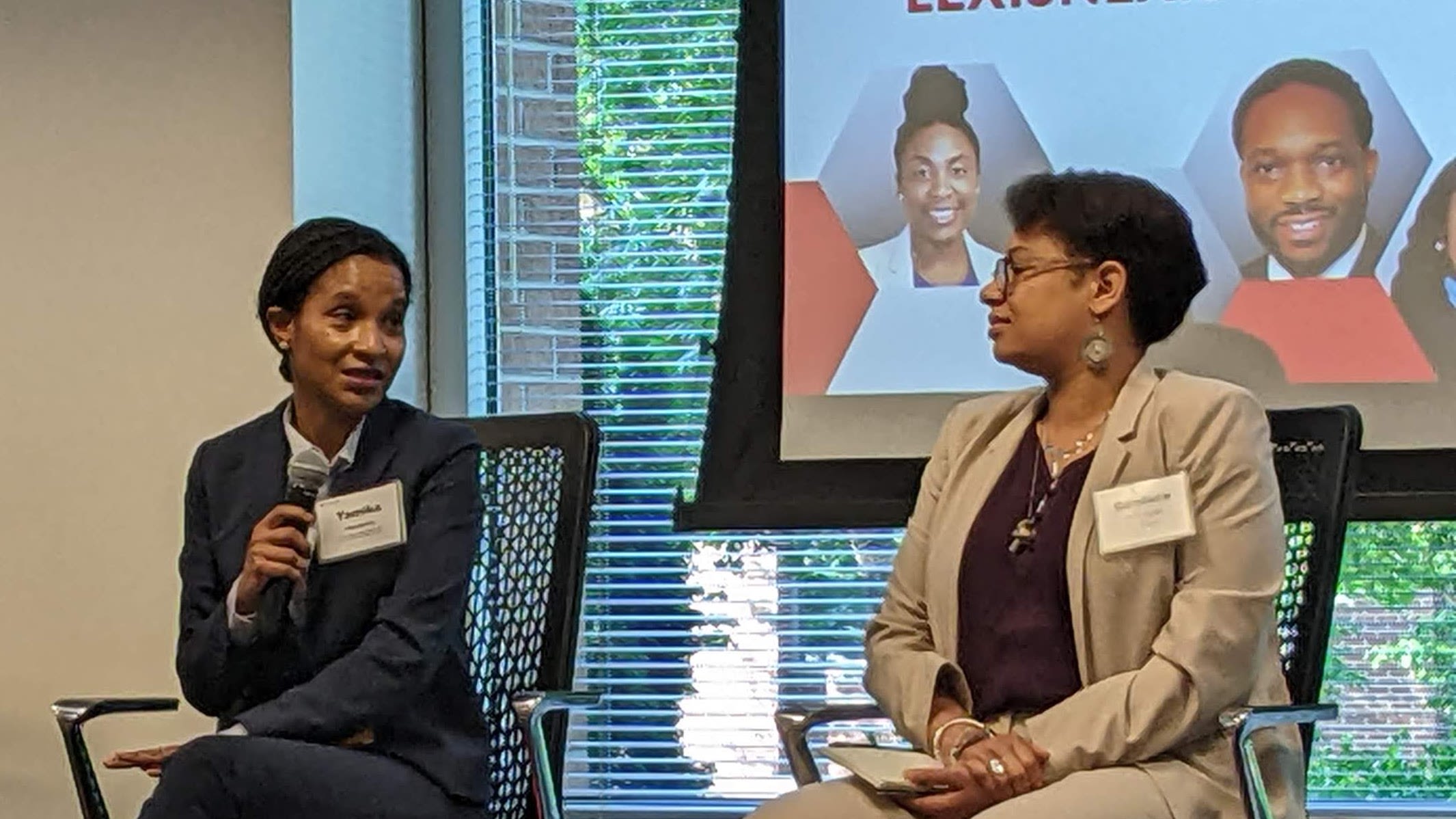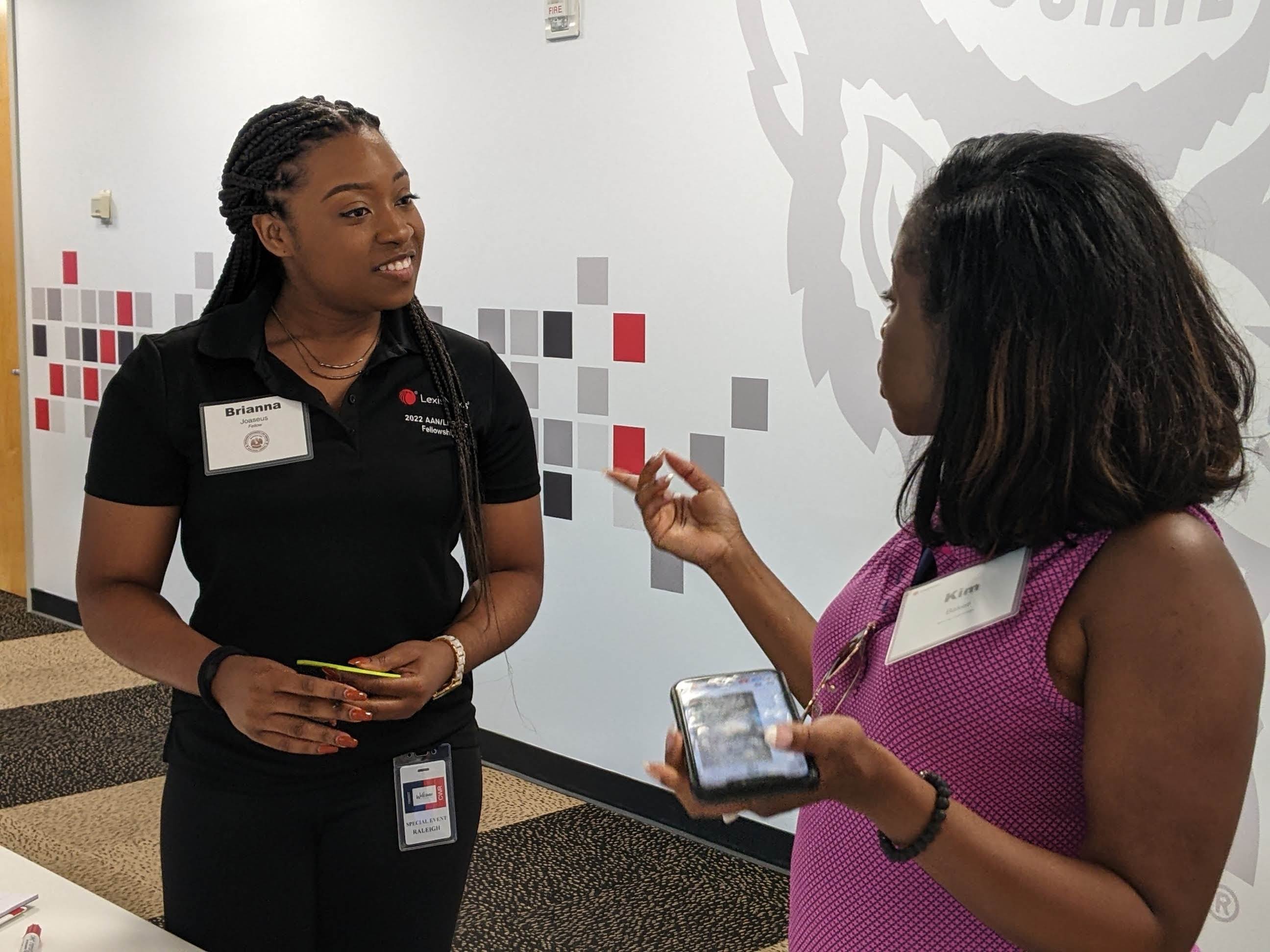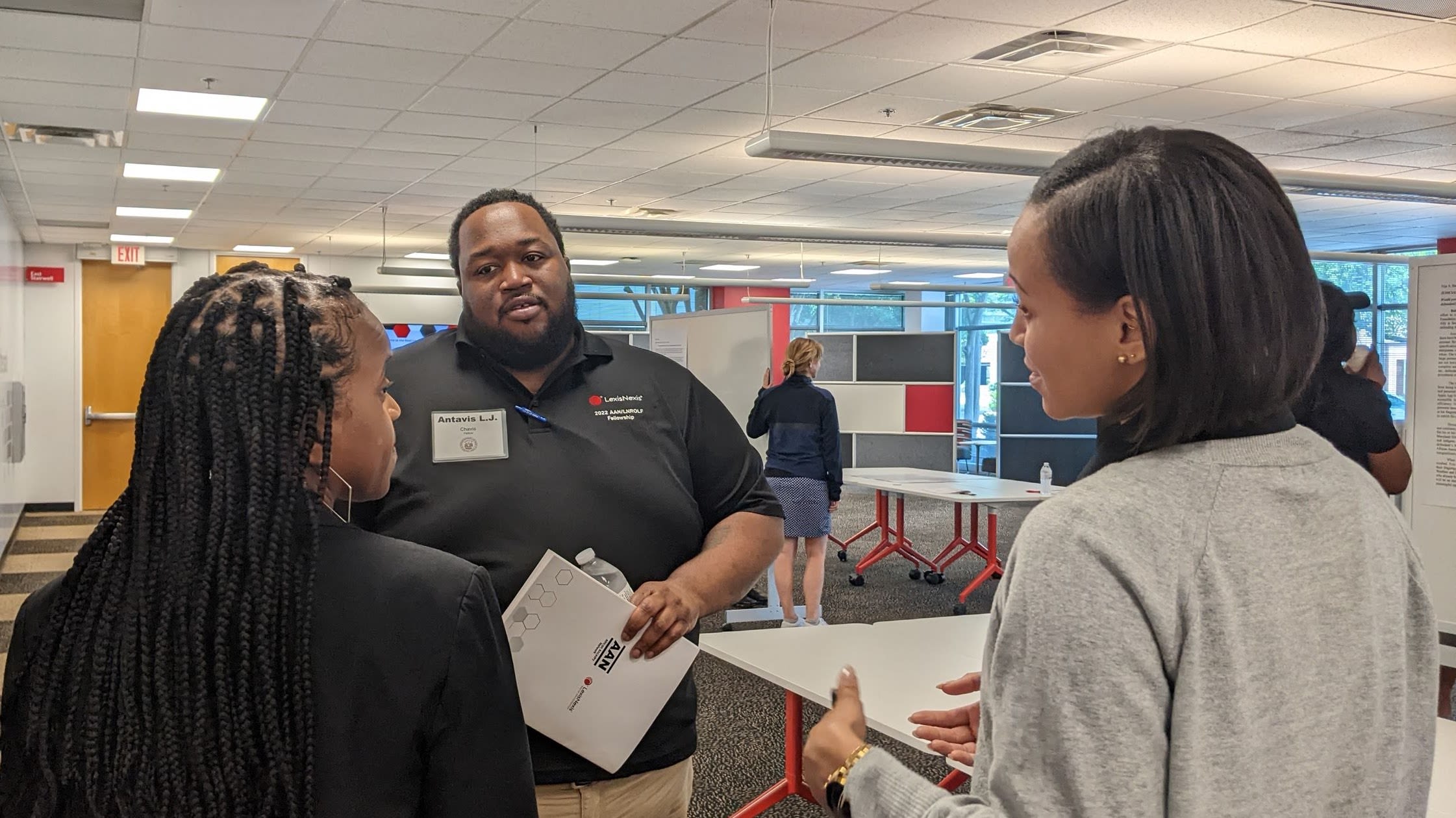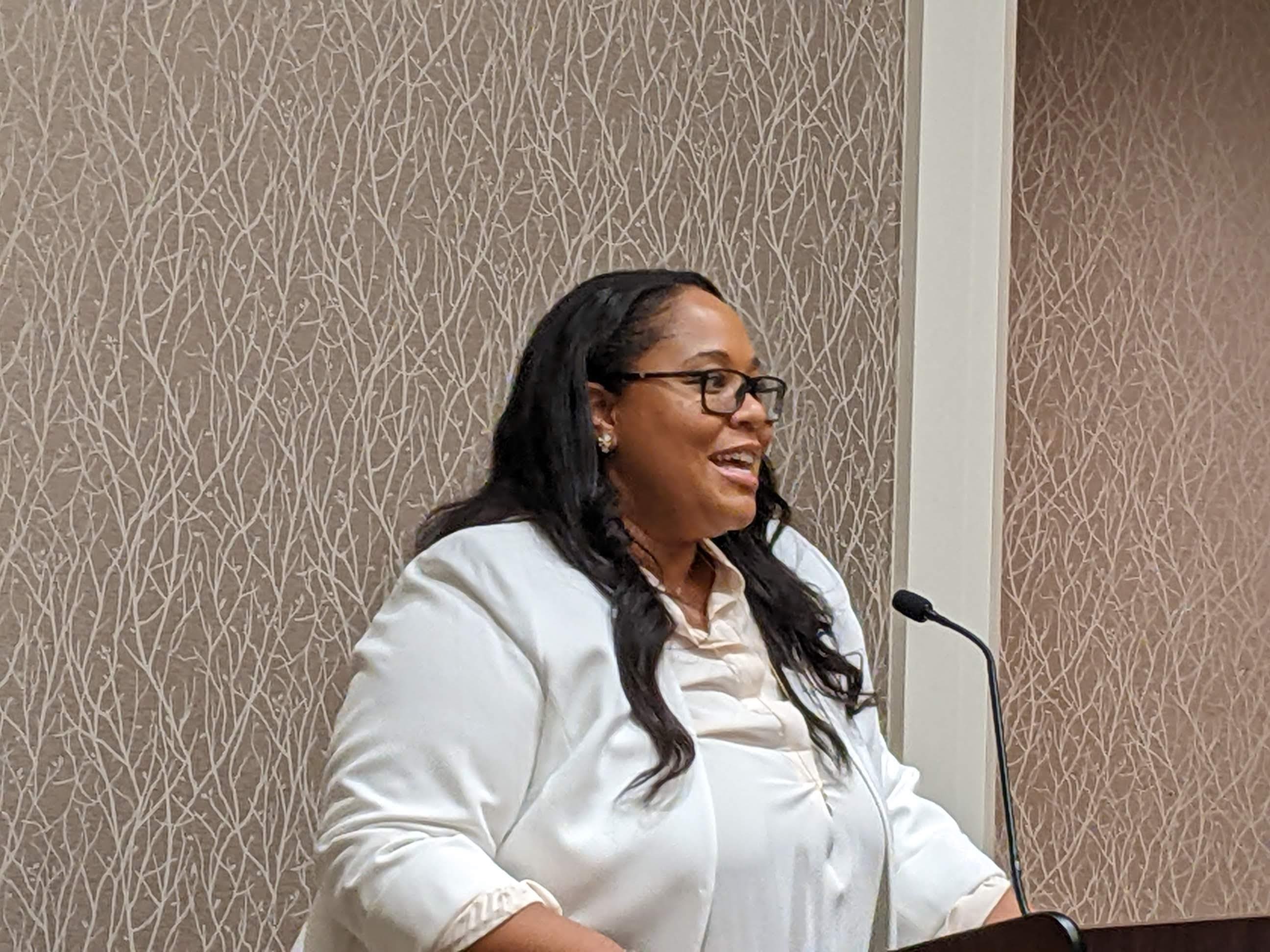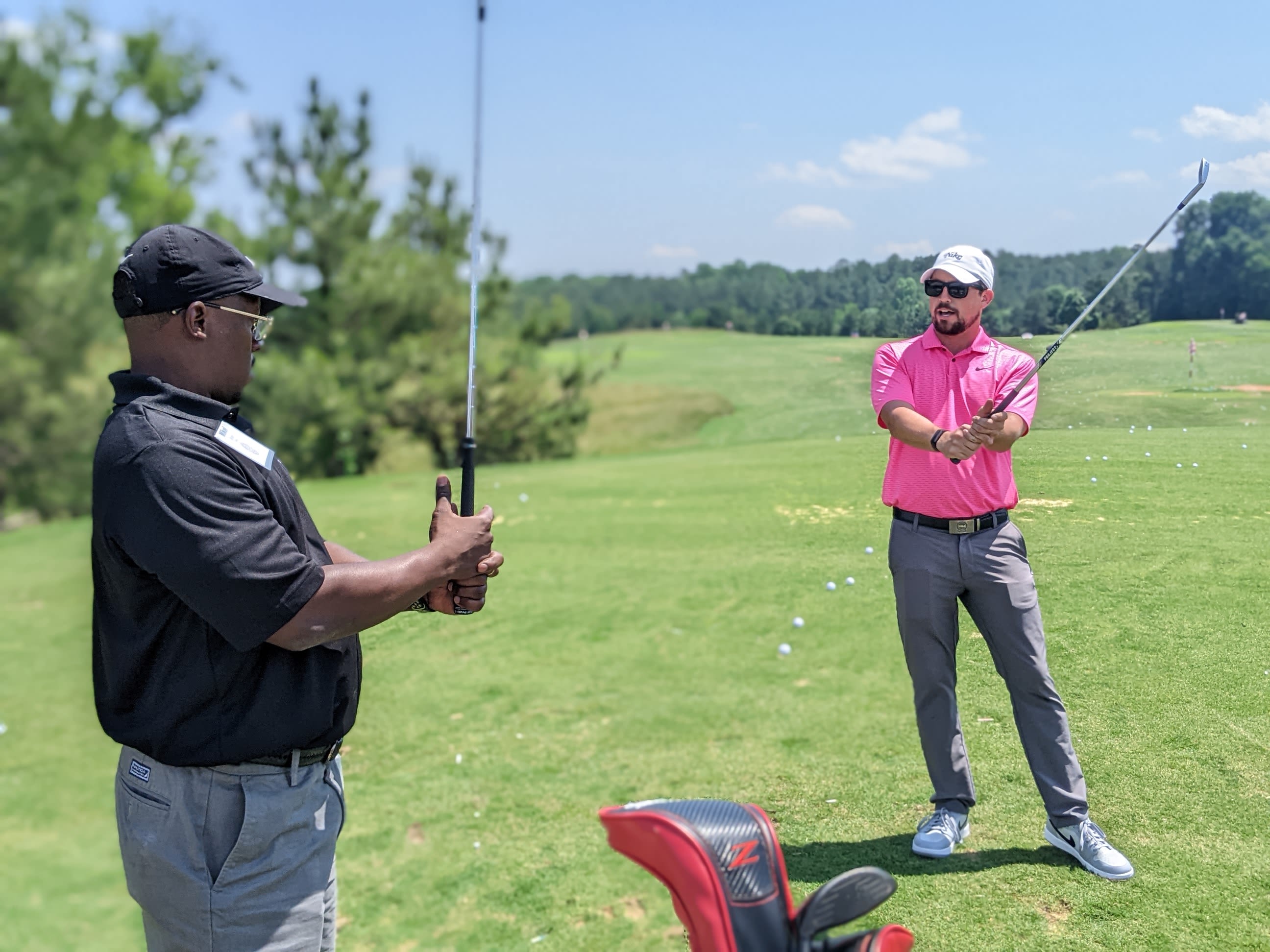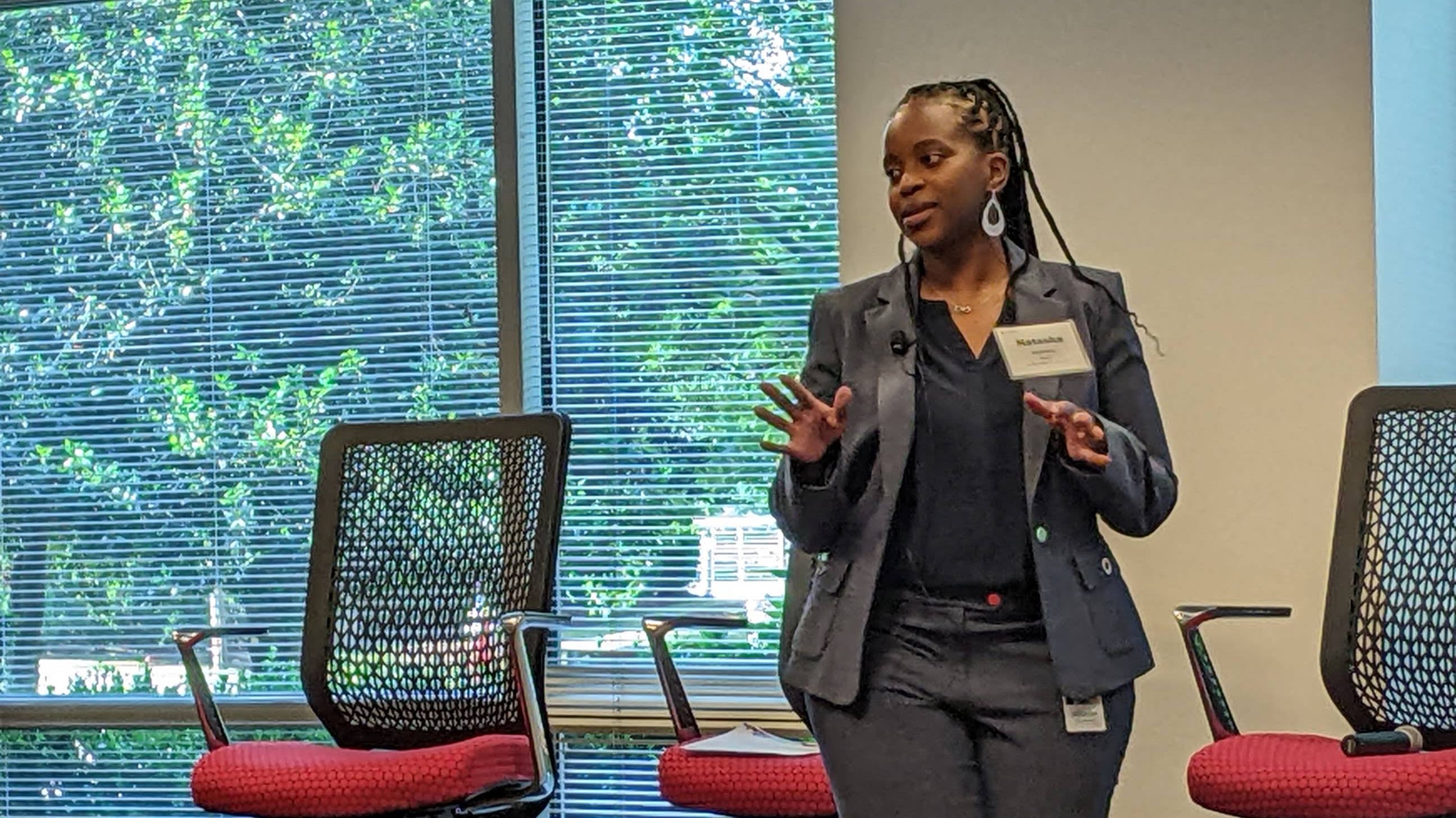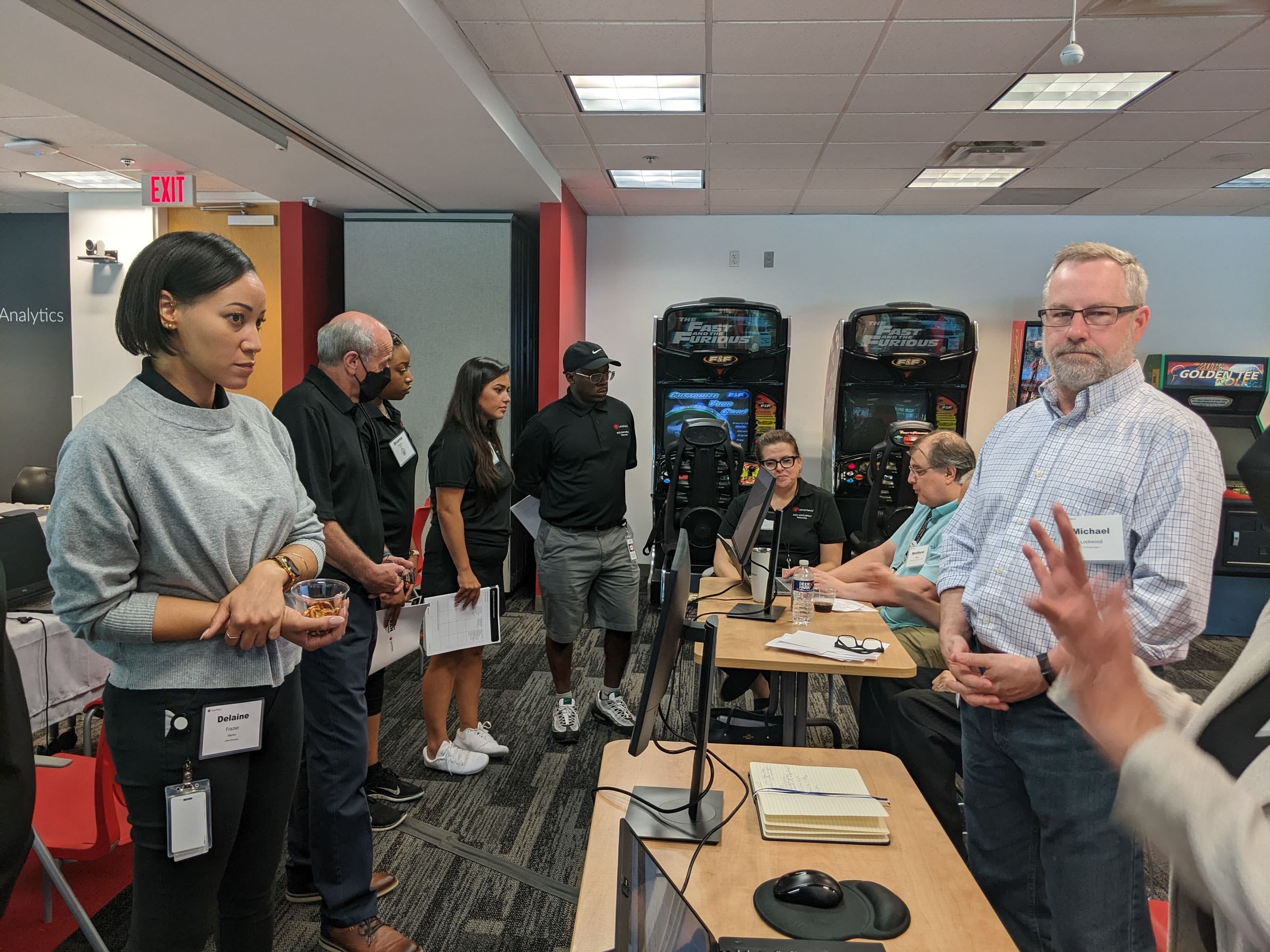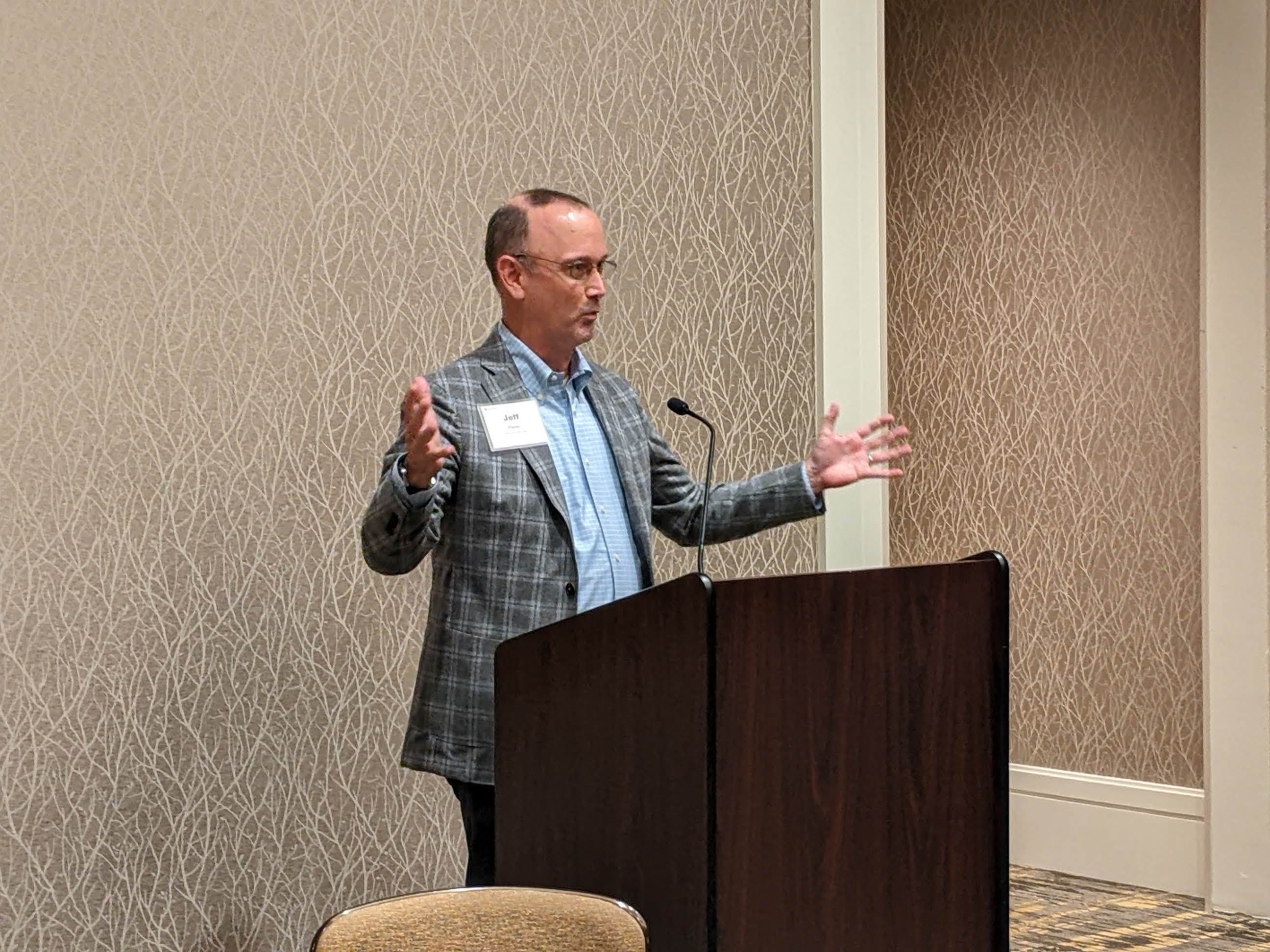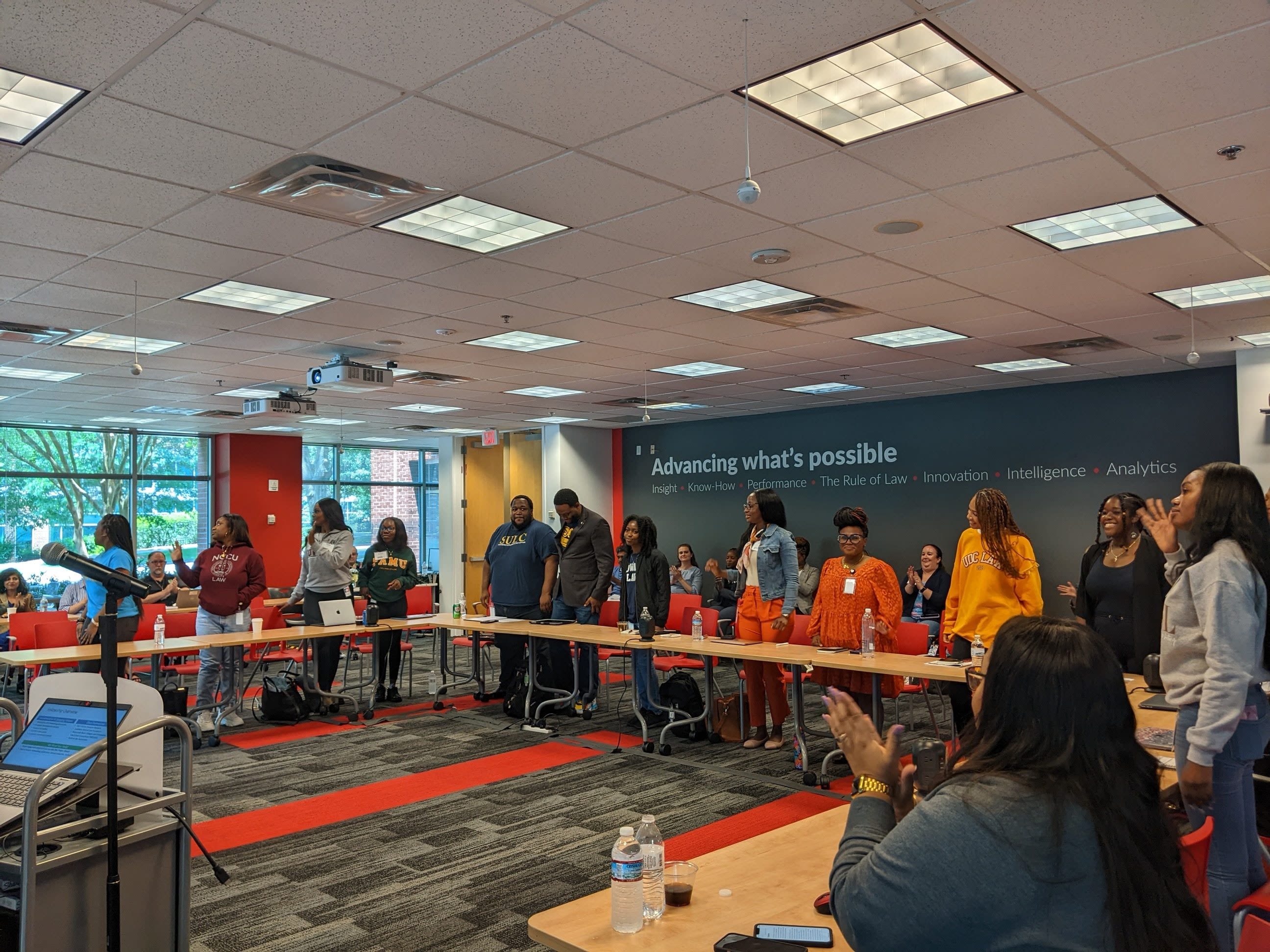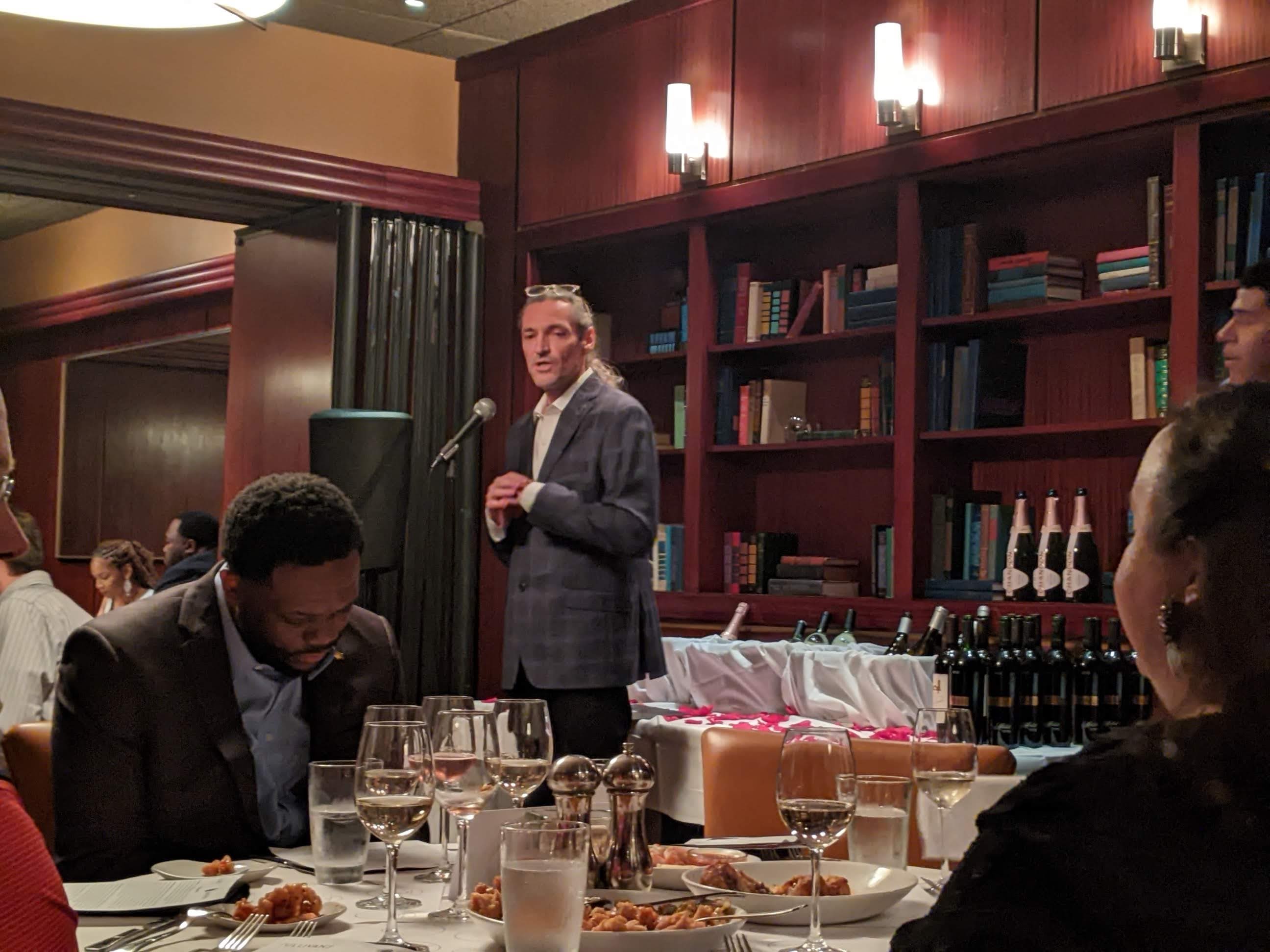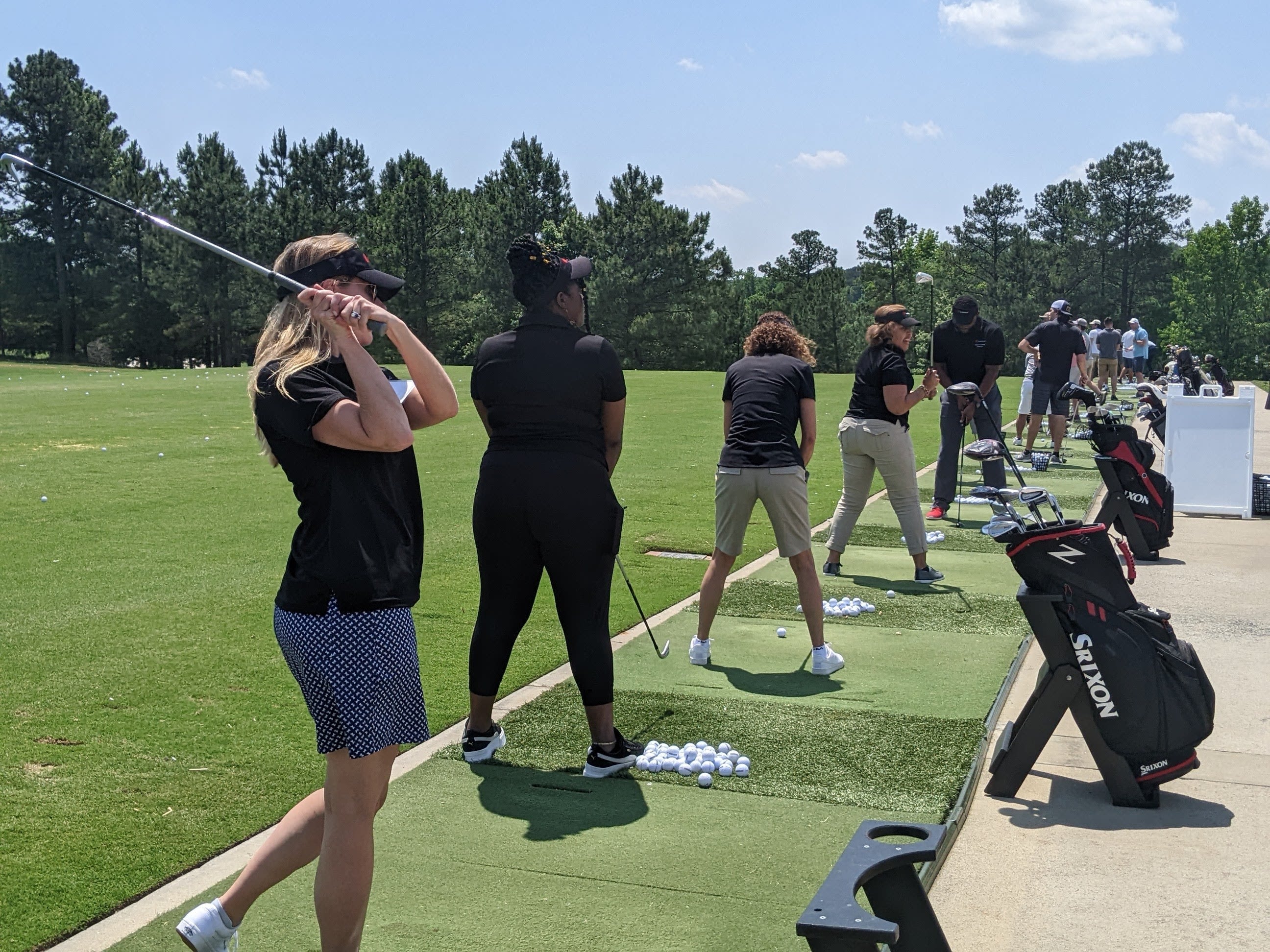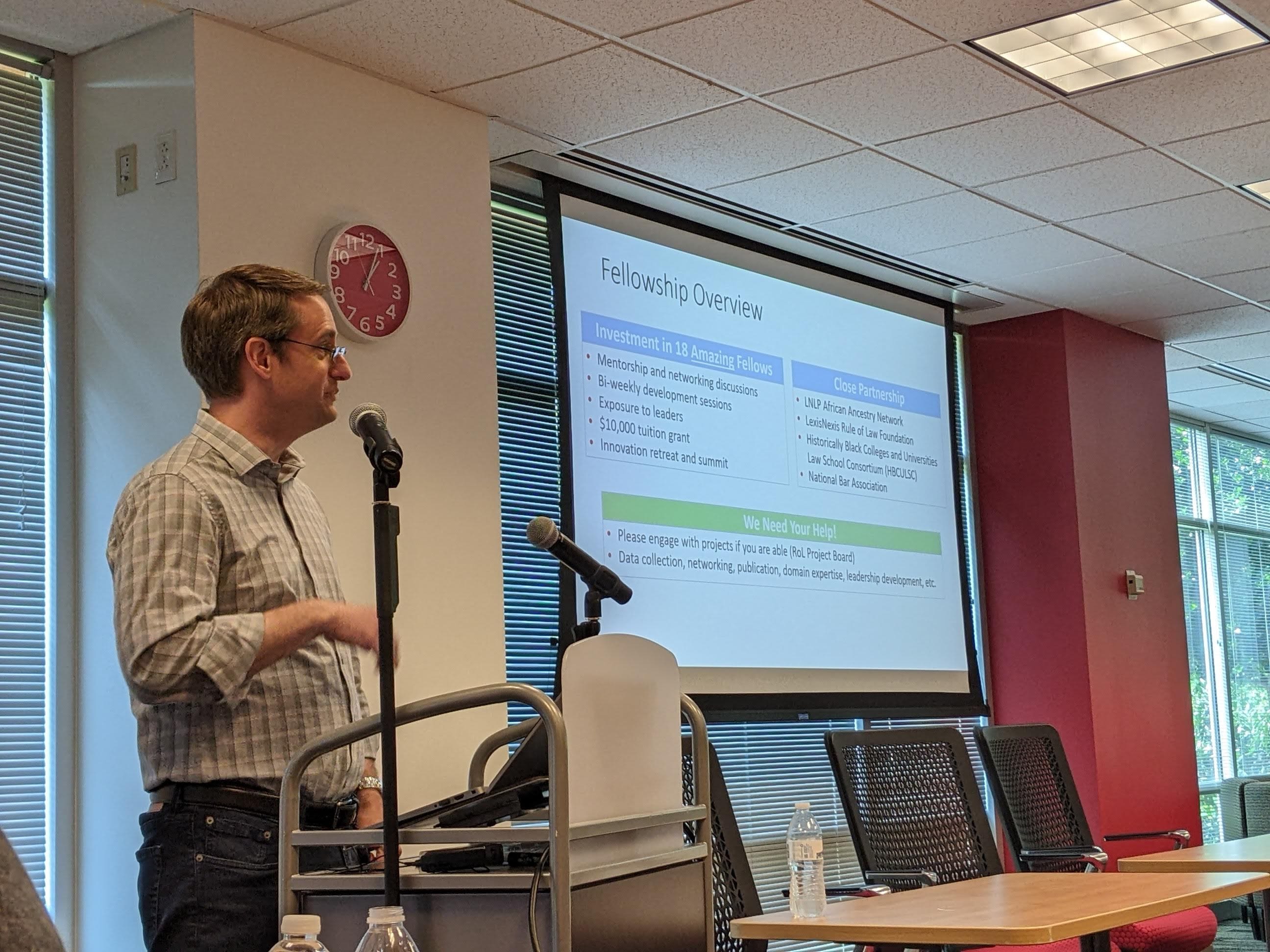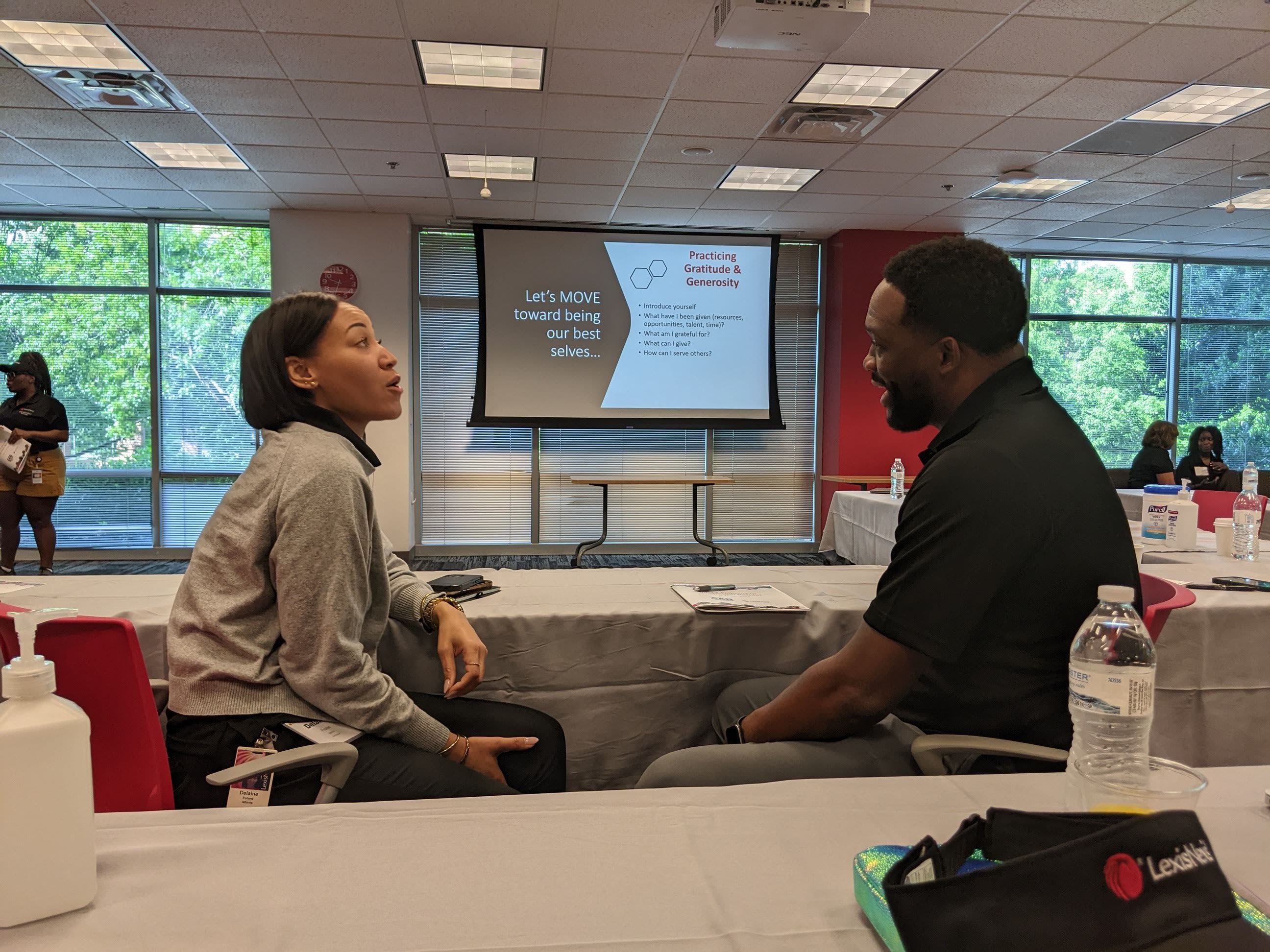Retreating and Moving Forward
LexisNexis African Ancestry Network LexisNexis Rule of Law Foundation Fellowship Innovation Retreat
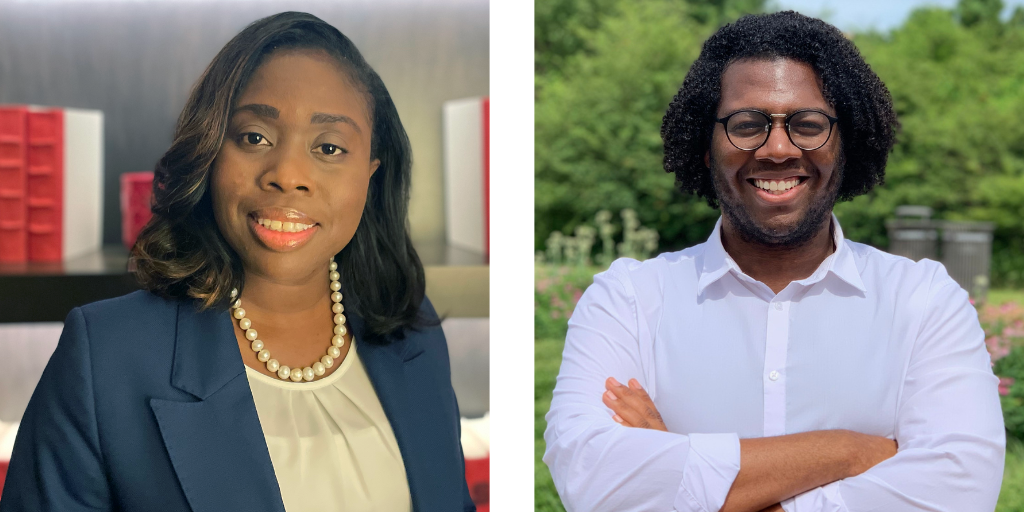

Law students participating in the second year of the prestigious LexisNexis African Ancestry Network and LexisNexis Rule of Law Foundation (AAN LNROLF) Fellowship program gathered at the LexisNexis® Technology Center in Raleigh, NC for the inaugural Innovation Retreat to learn, grow, and advance in the areas of law and technology while sharing their projects aimed at eliminating systemic racism in the legal system and advancing the rule of law.

The Fellowship program began in 2021, as a part of LexisNexis Legal and Professional (LNLP)’s commitment to the rule of law, inclusion and diversity, and being an advocate for black lives. The Fellowship is unique in that the program partners with the Historically Black Colleges and Universities Law School Consortium (HBCULSC), including Florida Agricultural and Mechanical University College of Law, Howard University School of Law, North Carolina Central University School of Law, Southern University Law Center, Thurgood Marshall School of Law at Texas Southern University, and the University of the District of Columbia David A. Clarke School of Law, to provide solutions-based initiatives to eliminate systemic racism in the legal system.
In its second year, the Fellowship has grown by 50%, after a record high applicant cycle. The 2022 Cohort consists of 18 Fellows, who have been paired with mentors throughout the LexisNexis organization. The mentors and Fellows engage in providing real-world solutions to problems entangled in the fabric of society. Notably, the program awards a $10,000 tuition grant to each selected Fellow.
The students at each of the consortium’s six law schools are participating in a nine-month Fellowship program, spanning March to November 2022. LexisNexis, a leading legal technology company, recognizes the value of the Fellows’ written words and ideology. Each Fellow is engaged as a compensated and published author by VP, Global Editorial Operations, Elinor Reinhardt’s attorney staff writer team and tasked with the creation of a legal advocacy paper on their project focus. The papers will be compiled in a publication, Eliminating Systemic Racism In The Legal System: LexisNexis African Ancestry Network LexisNexis Rule Of Law Foundation Fellowship Legal Advocacy Papers 2022. The hope on the Editorial side of the Lexis organization is that the Fellows’ papers will inspire others for years to come, as well as reflect pristine writing samples that the Fellows can use in their job applications or perhaps one day in their judicial confirmation hearings. The 2021 Cohort published their findings last year with stellar reviews.
The Innovation Retreat, led by Ronda Moore, Chief Inclusion and Diversity Officer and Head of Talent Development at LNLP, and Adonica Black, Fellowship Director and LexisNexis Legal and Professional Director of Global Talent Development and Inclusion, provided the Fellows an opportunity to formulate their project ideas to eliminate systemic racism alongside inspirational Lexis leaders like Tina Debose, a 40-year Lexis pioneer, and the first female professional hired in IT at Lexis. The Fellows also collaborated with LNLP’s Global Product team on how technology, LexisNexis products, and their innovation can accelerate equity and bolster their projects.
"African Ancestry Network LexisNexis Rule of Law Foundation Inaugural Retreat was a great experience for me to truly grow my initiative; I was able to obtain feedback from my cohorts and the LexisNexis family, network with people who understood and wanted to further my initiative, and learn about the different ways and impact of being an advocate for diversity. I am so thankful for the LexisNexis family, Adonica Black, and Ronda Moore for hosting this retreat and taking us, Fellows, under their wing."
Kristina M. Hall
Thurgood Marshall School of Law of Texas Southern University

Fellows and Their Projects
“I’d like to tell you about the Cluster structure we have used to set up this Fellowship program. When contemplating the mission of the Fellowship – to eliminate systemic racism in the legal system and thereby advance the rule of law – we thought about what would create a tangible impact. We then quickly realized that tackling such an entrenched, systemic issue requires a systematic approach. This led to the development of our cluster model and the clusters you see shared on the screen.
When contemplating how Black lives are affected by the legal system, oftentimes, unfortunately, it can start with an ill encounter during their youth. This ill encounter may lead to a lack of trust or interest in the legal system overall and a potential legal career. Our first cluster is intending to upend that negative impression, by making the legal system more equitable and attractive to the youth.
Then, as we move forward from youth and build a sense of interest and connection to the legal system, we consider how to make legal education more diverse and inclusive. This will hopefully lead to a more diverse practice in the law and inclusive and equitable remedies. This brings us to our next few clusters who are contemplating how to make leadership in the legal profession more diverse, which will lead to greater diversity in the areas of practice that are represented by attorneys of color and greater outcomes for all. Followed by greater representation and equity in the court system, with a particular focus on eliminating bias in the dispensation of justice. This connects to our fifth cluster that is focused on the criminal justice system holistically and ensuring reduced disparate impact in the courts, including how juries are selected.
Finally, our sixth cluster focused on wealth and ownership underpins a more prosperous future for us all.” – Adonica Black, Fellowship Director and LexisNexis Legal and Professional Director of Global Talent Development and Inclusion
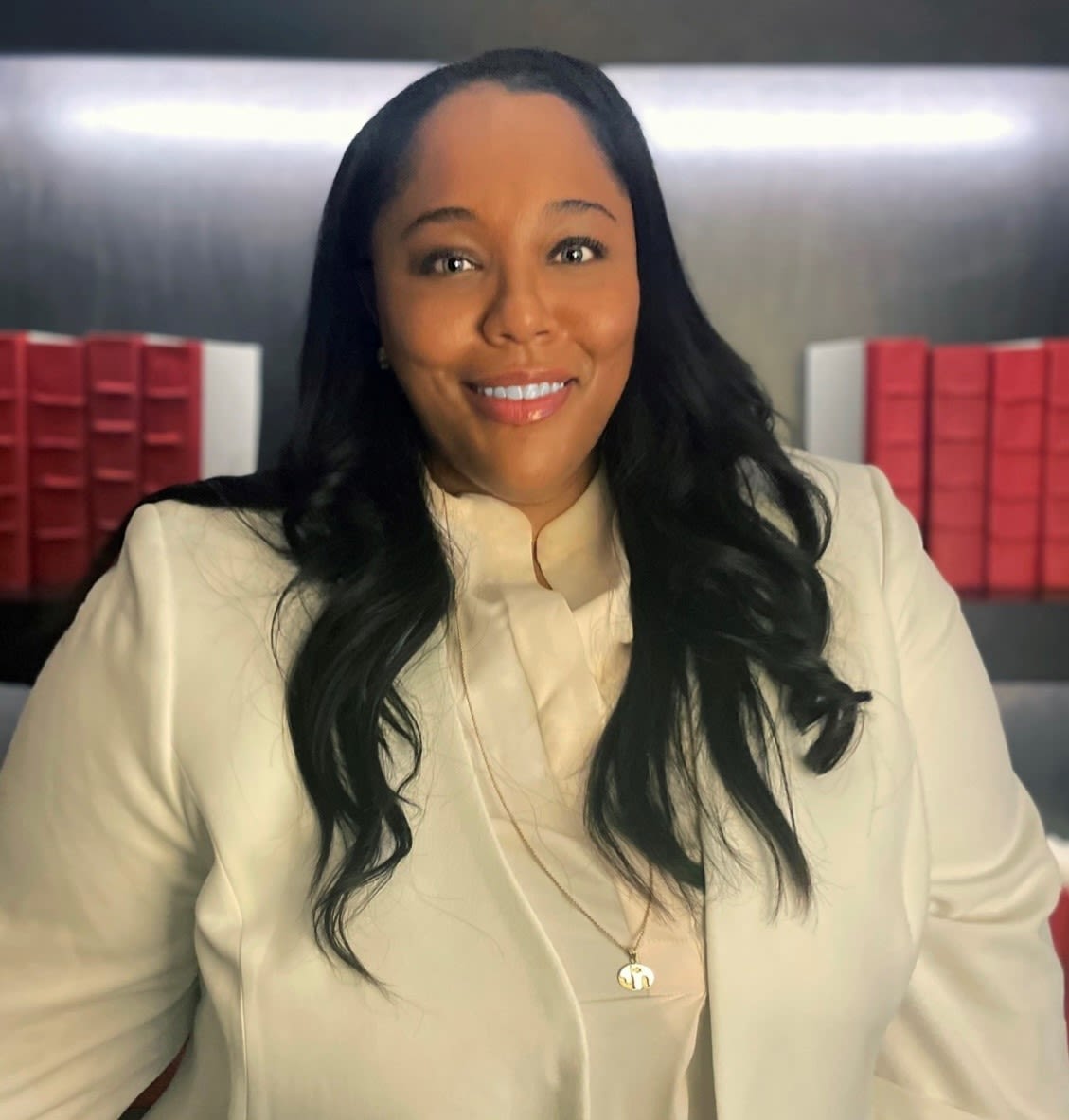
Adonica Black, Fellowship Director and LexisNexis Legal and Professional Director of Global Talent Development and Inclusion
Adonica Black, Fellowship Director and LexisNexis Legal and Professional Director of Global Talent Development and Inclusion
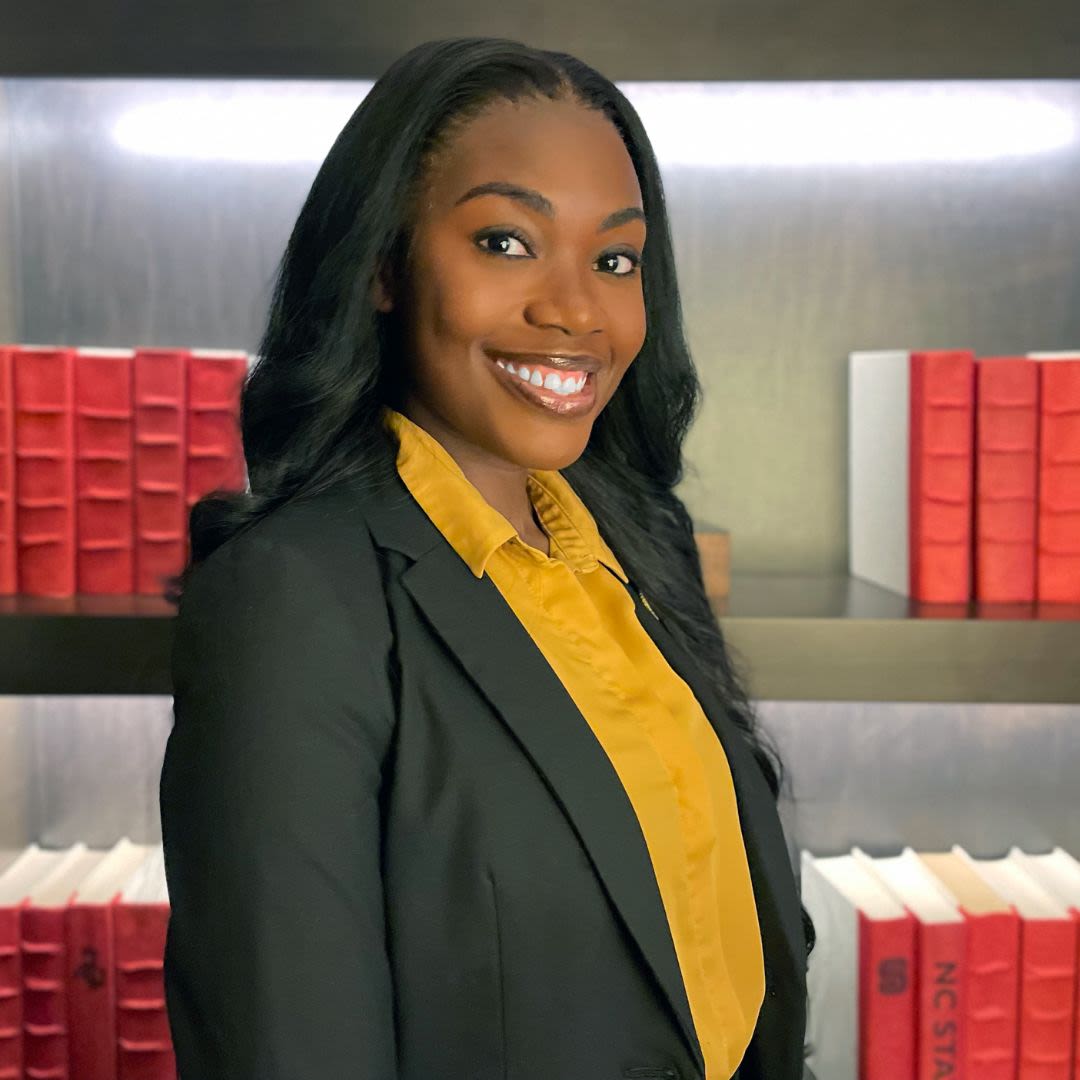
Remediating the Inequitable Application of Waivers to Adult Court in the District of Columbia Juvenile Justice System
By: Oyinade Adebayo, Howard University School of Law
Oyinade's project focuses on African American youth’s negative interaction with the justice system at an early age, and how it contributes to lack of diversity in the legal profession. Oyinade proposes remediating the inequity by creating a risk assessment tool to be used by judges in their determination of a juvenile’s waiver to adult court.
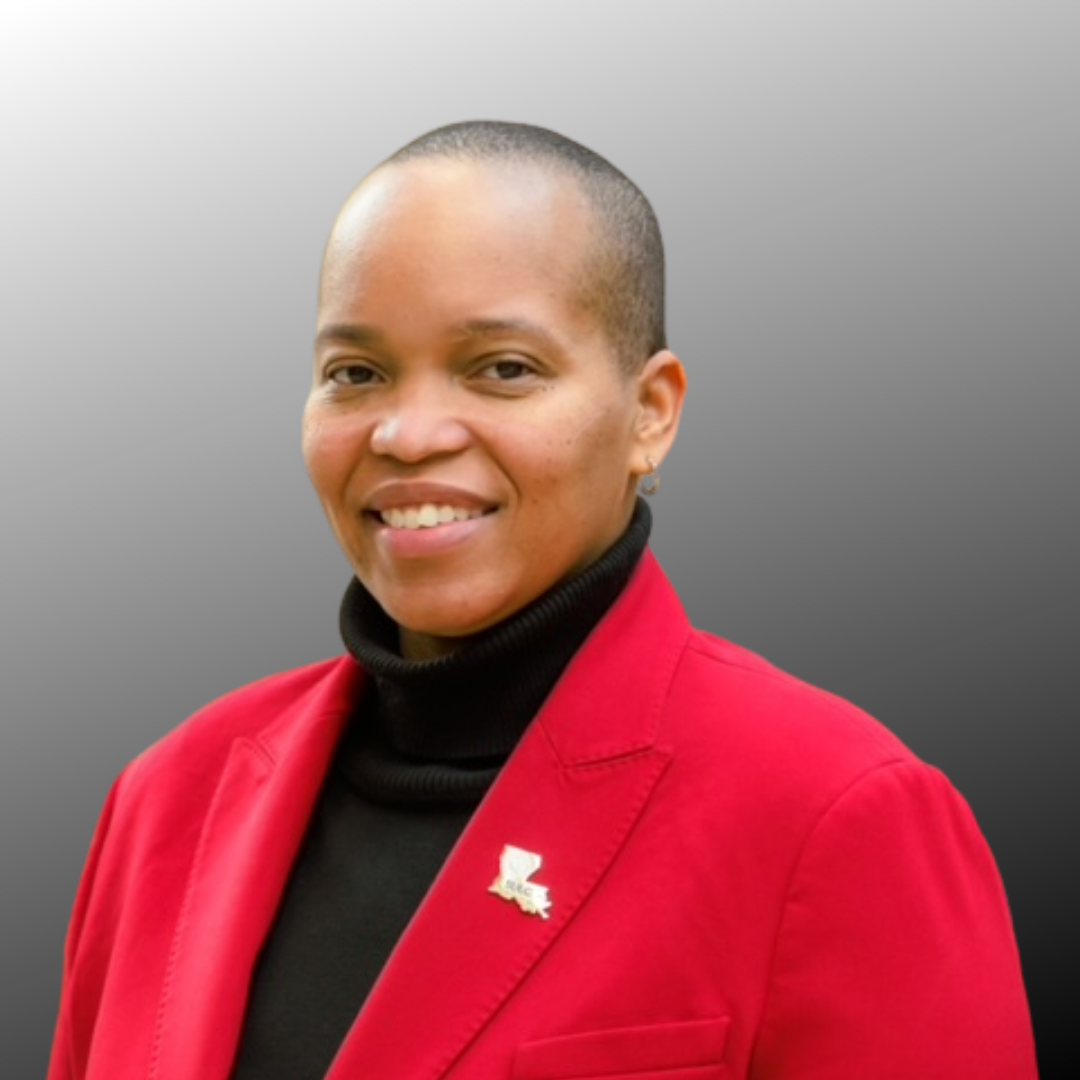
Proposed Legislation Equity in Marijuana and Sentencing
By: Marian Anderson, Southern University Law Center
Marian’s project focuses on mitigating the excessive imprisonment of African Americans for the possession and use of marijuana. Marian highlights the sad reality that other racial groups have been allowed to build financial empires from marijuana sales. Marianne seeks to decriminalize marijuana sales and expunge the records of those who have been convicted for the sale and/or use of marijuana.
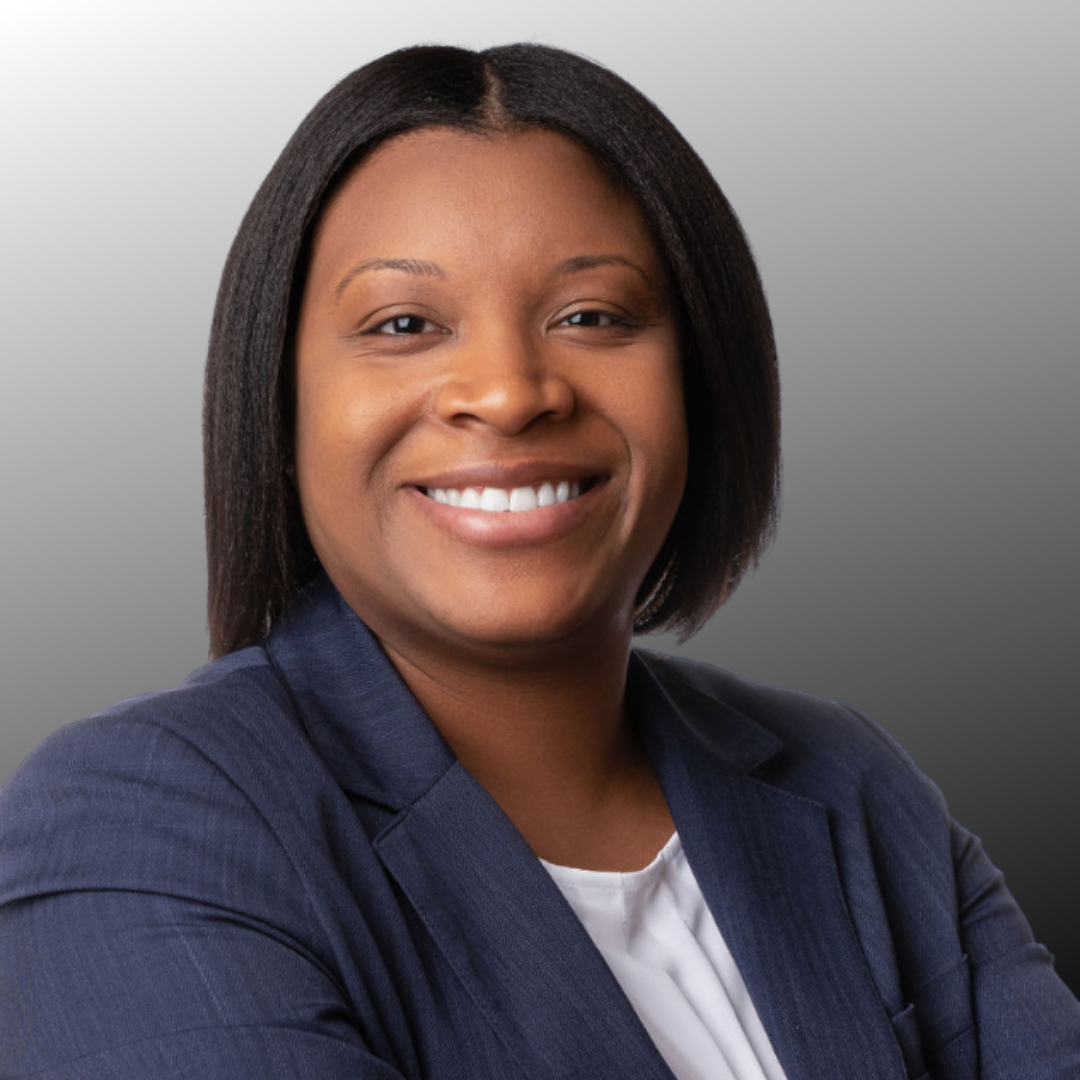
Ally App Judicial Accessibility Offender’s Fingerprints
By: Nija Bastfield, University of the District of Columbia David A. Clarke School of Law
Nija’s project aims to offer those accused of minor crimes the opportunity to have easy access to a public defender or to have pro se information, all to be available on electronic devices.
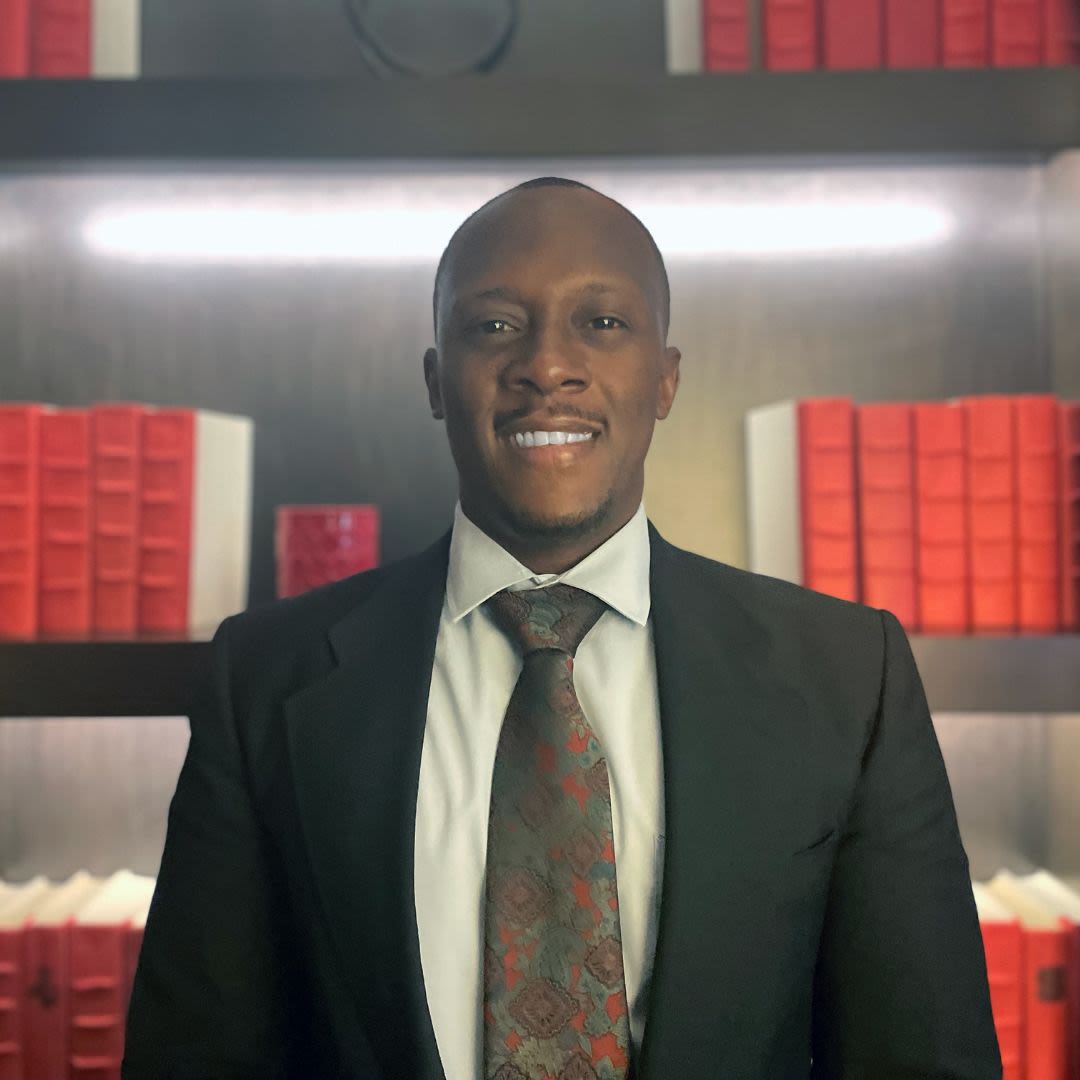
Data Collection and Racial Advocacy around the Topic of the School to Prison Pipeline
By: Mikel Brown, Thurgood Marshall School of Law of Texas Southern University
Mikel Brown’s project concentrated on data collection and racial advocacy around the topic of the school-to-prison pipeline and to use LexisNexis resources (technology, technical writers, and data scientist) to reduce the disproportionate numbers of African American youth that end up in the school-to-prison pipeline.
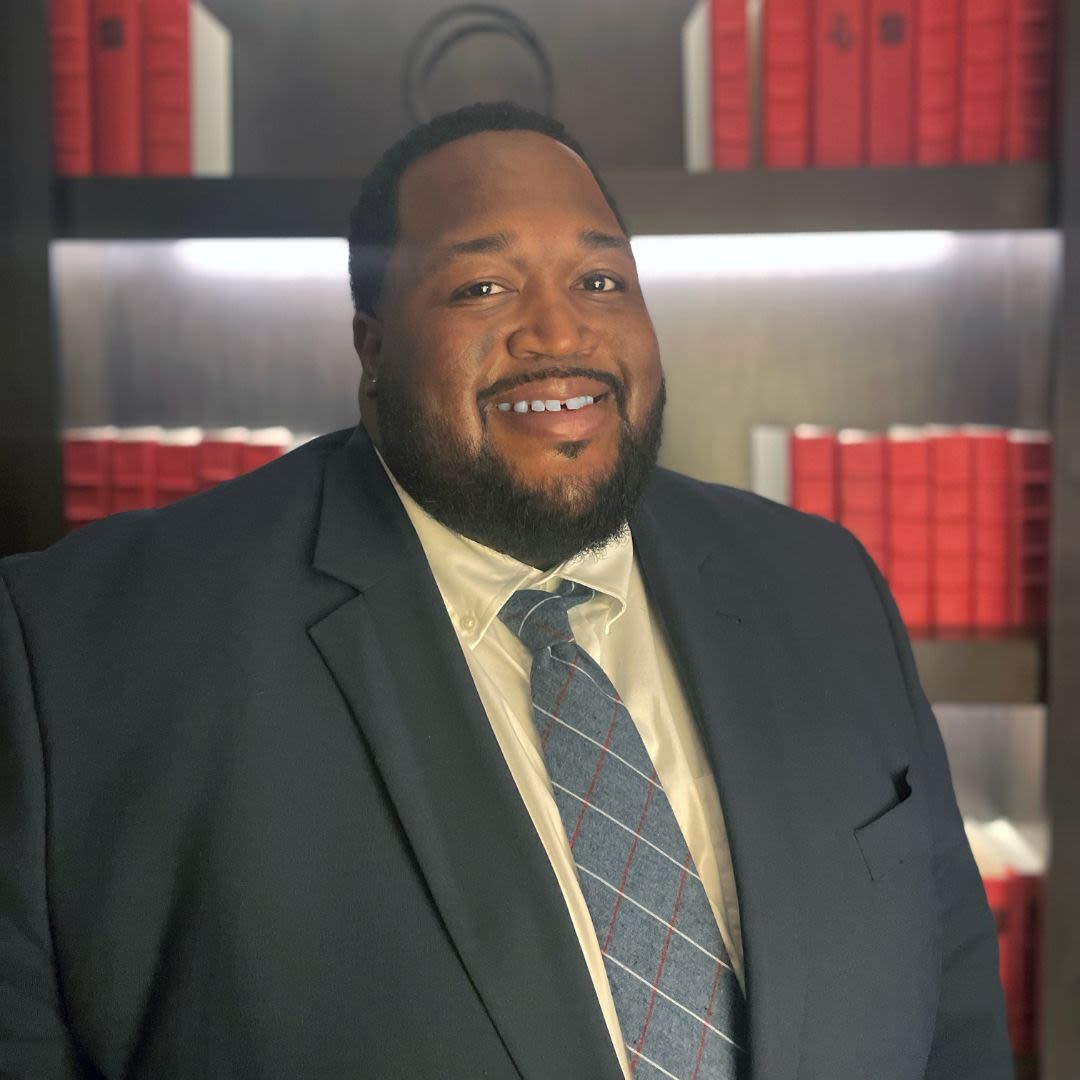
Progressive Prosecution: Combating Racism within the Judicial System
By: Antavis L. J. Chavis, Southern University Law Center
L.J.’s project involves research into the following questions:
- What constitutes progressive prosecution?
- What are its principles?
- How can I use those principles to impact the community in which I live?
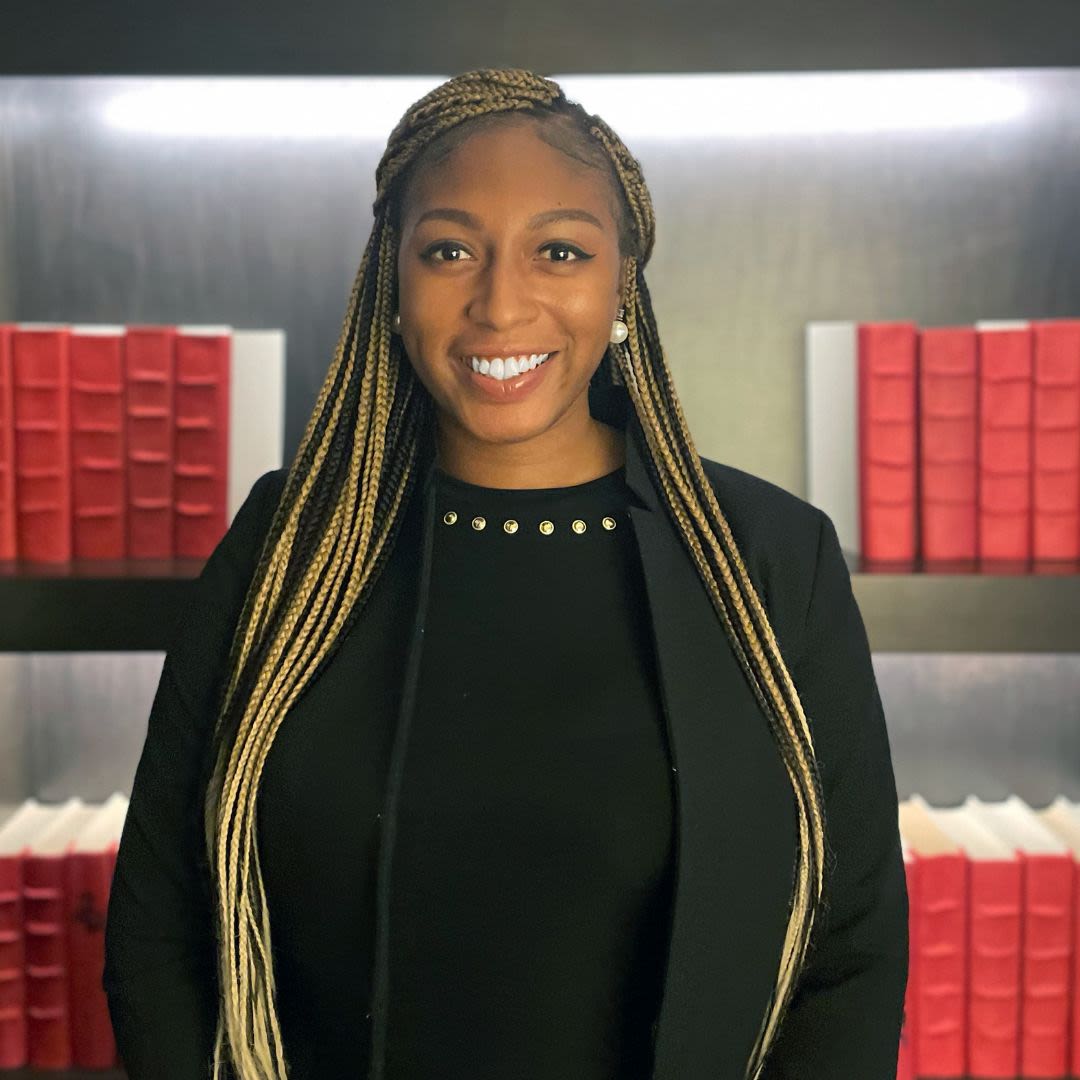
Advancing the Rule of Law through Legal Education
By: Dominique Douglas, North Carolina Central University School of Law
Dominique ’s project, “Hooked on the Law”, seeks to create a digital application software that has download capabilities which will present fundamental legal rights and laws that frequently affect children. Douglas intends to present legal information through animated educational modules which will include images, characters, and interactive charts, as well as brief questions to test the students' understanding. Her project’s goal is to leverage the content created by a community partner and innovate the current software to allow for mobile capability.
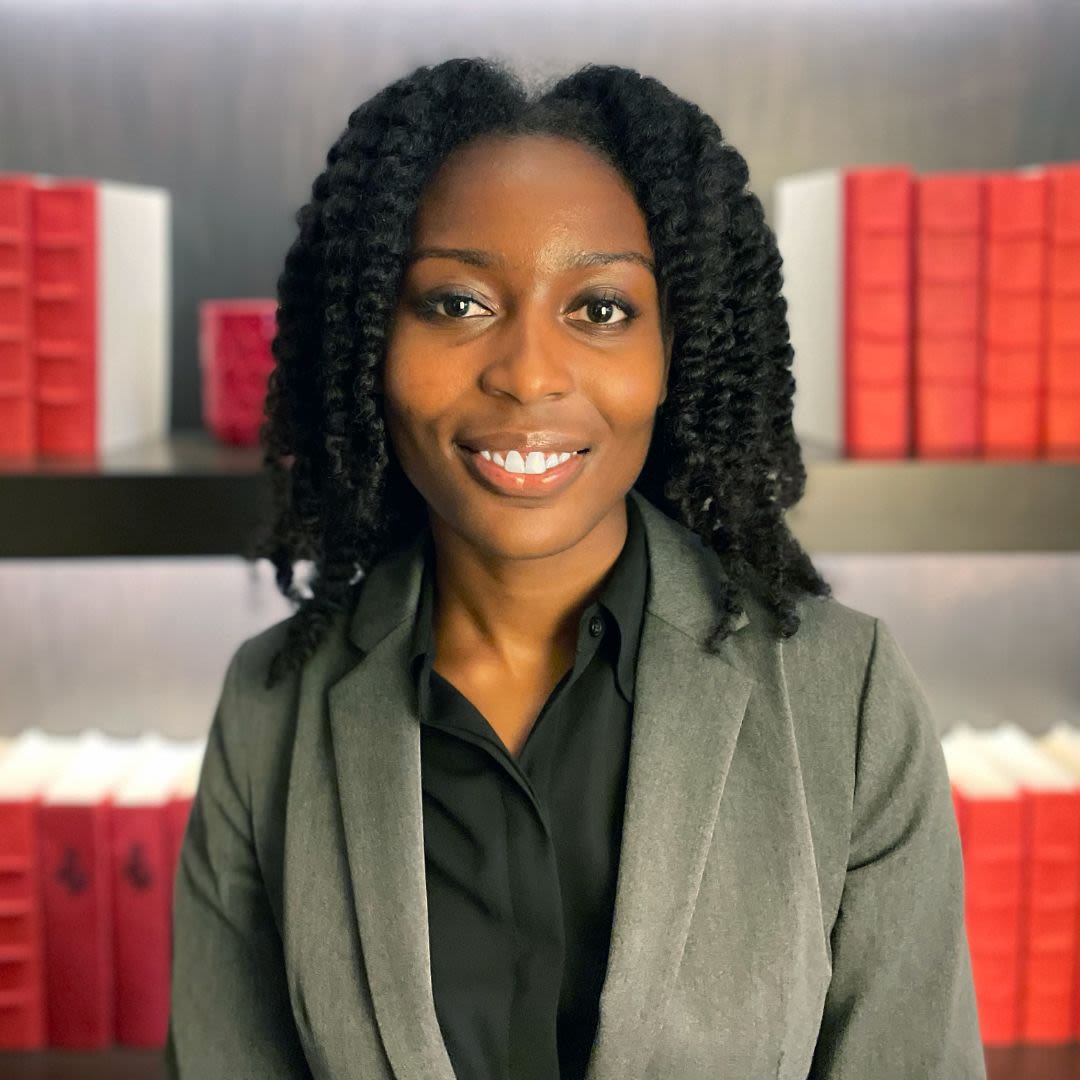
AI in Jury Selection
By: Aquilla Gardner, Howard University School of Law
Aquilla’s project focuses on using artificial intelligence (AI) in jury selection in North Carolina. Aquilla believes using AI in the jury selection process will allow individuals to mitigate bias and allow the accused to be judged on the merits of the case.
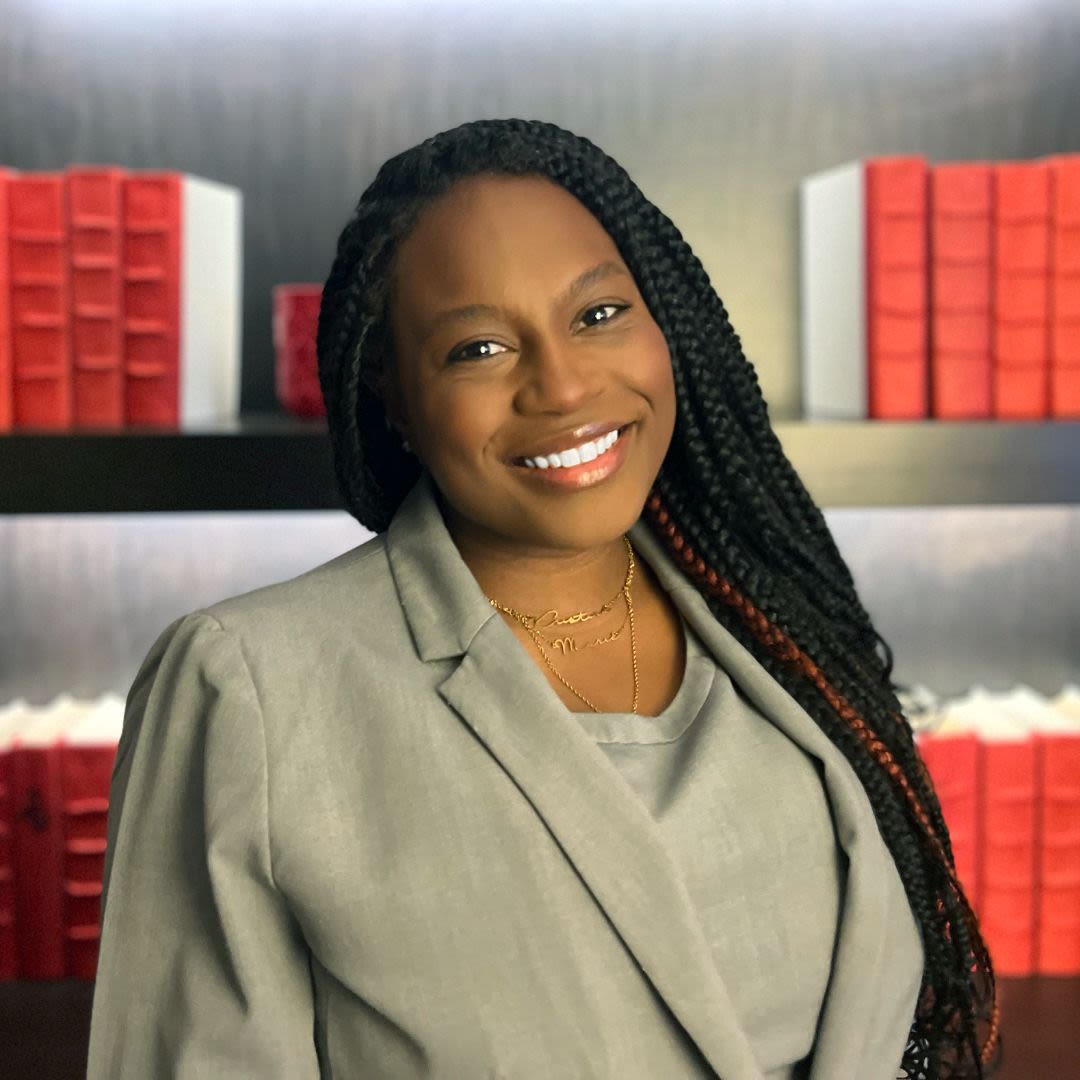
Breaking Barriers: The Pipeline to the Bench
By: Kristina Hall, Thurgood Marshall School of Law of Texas Southern University
Kristina’s project aspires to work to mitigate systemic racism by recruiting, mentoring, and coaching highly capable law students from the six HBCUs to highlight ideal candidates for federal clerkships.
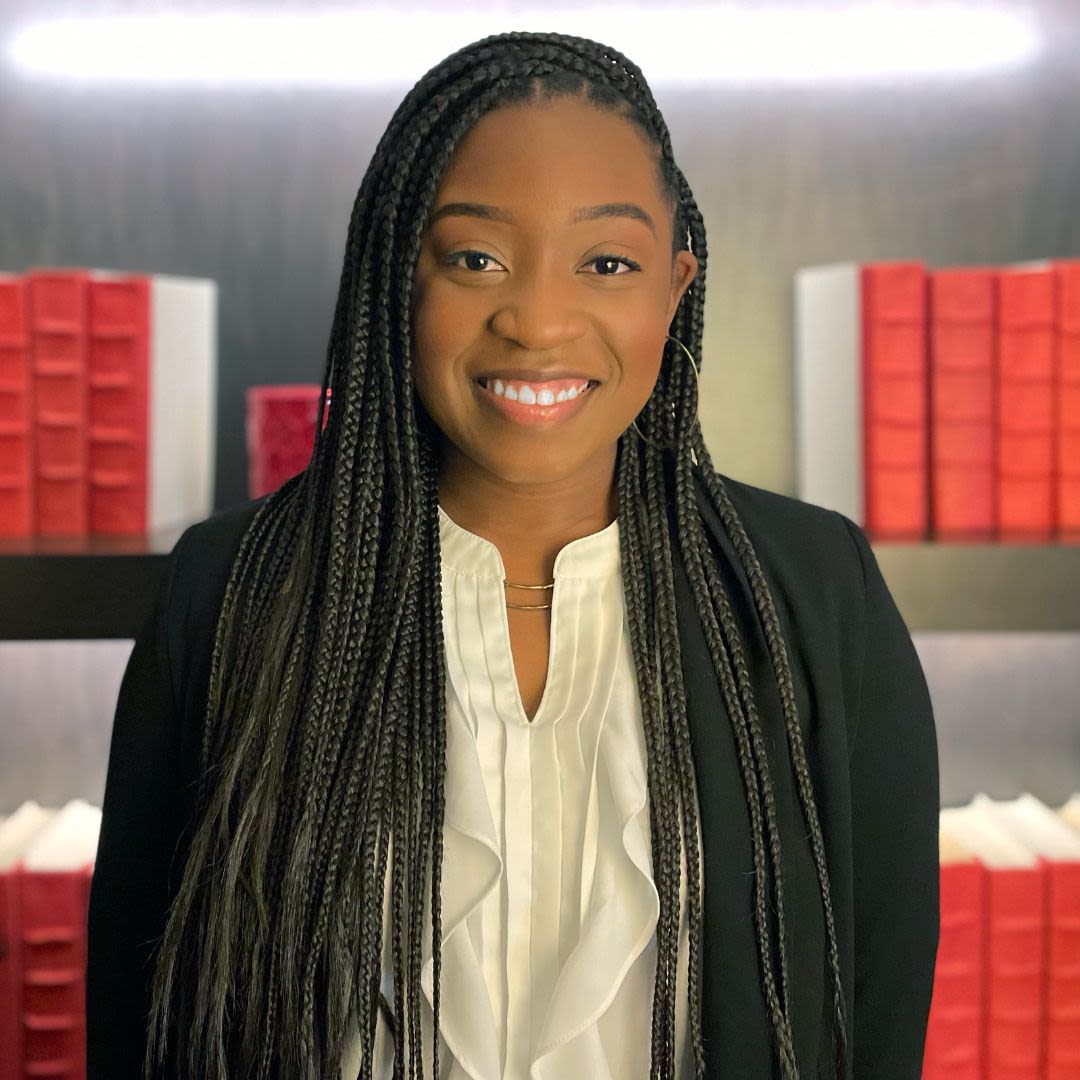
Home Evaluation and Racial Bias: Improving Transparency Between Appraisals and the Public
By: Brianna Joaseus, Southern University Law Center
Brianna’s project seeks to make information available to homebuyers in their search for an appraiser of their property through the use of a Lexis product to provide transparency regarding the appraisal process and a tool to mitigate bias in the appraised value of homes for African American homeowners and buyers.
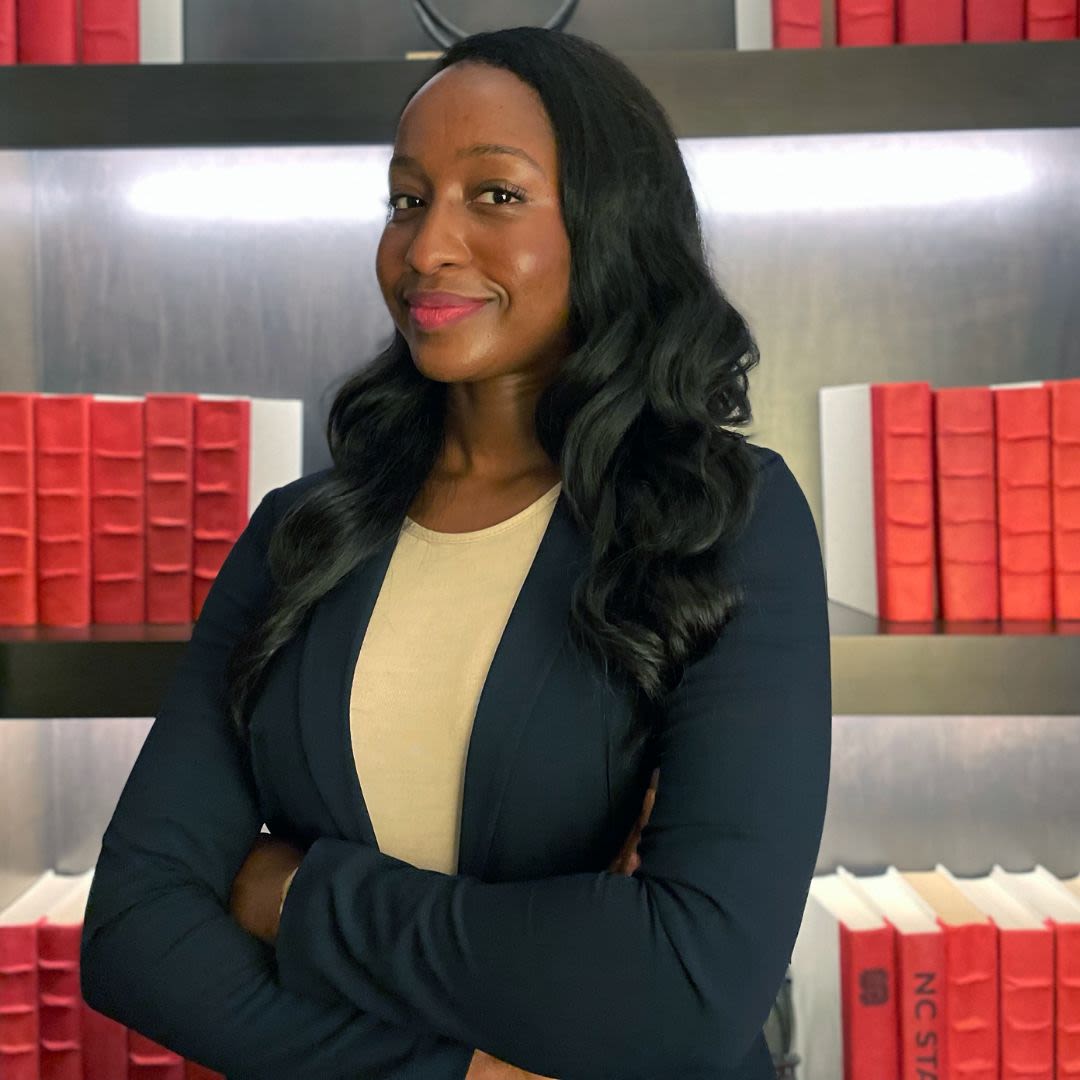
L.E.A.D.: Lawyers Engaged in the Advancement of Diversity
By: Joanne Lewis, Howard University School of Law
Joanne’s topic, “Black Leadership Matters (Diversity in Leadership of the Legal Profession),” focuses on having more black ownership in the legal profession. Joanne expresses, “How do we expect a better America if the decision-makers do not represent the population of America?” Joanne advocates increasing the number of black senior leaders in the legal profession. The focus of Joanne’s initiative is on the traditional legal field and the non-traditional legal fields, with the aim of promoting black-owned law firms. Joanne plans to use Practical Guidance templates, contract clause banks, and other available resourceful toolkits to help navigate the legal implications of life as a sole practitioner.
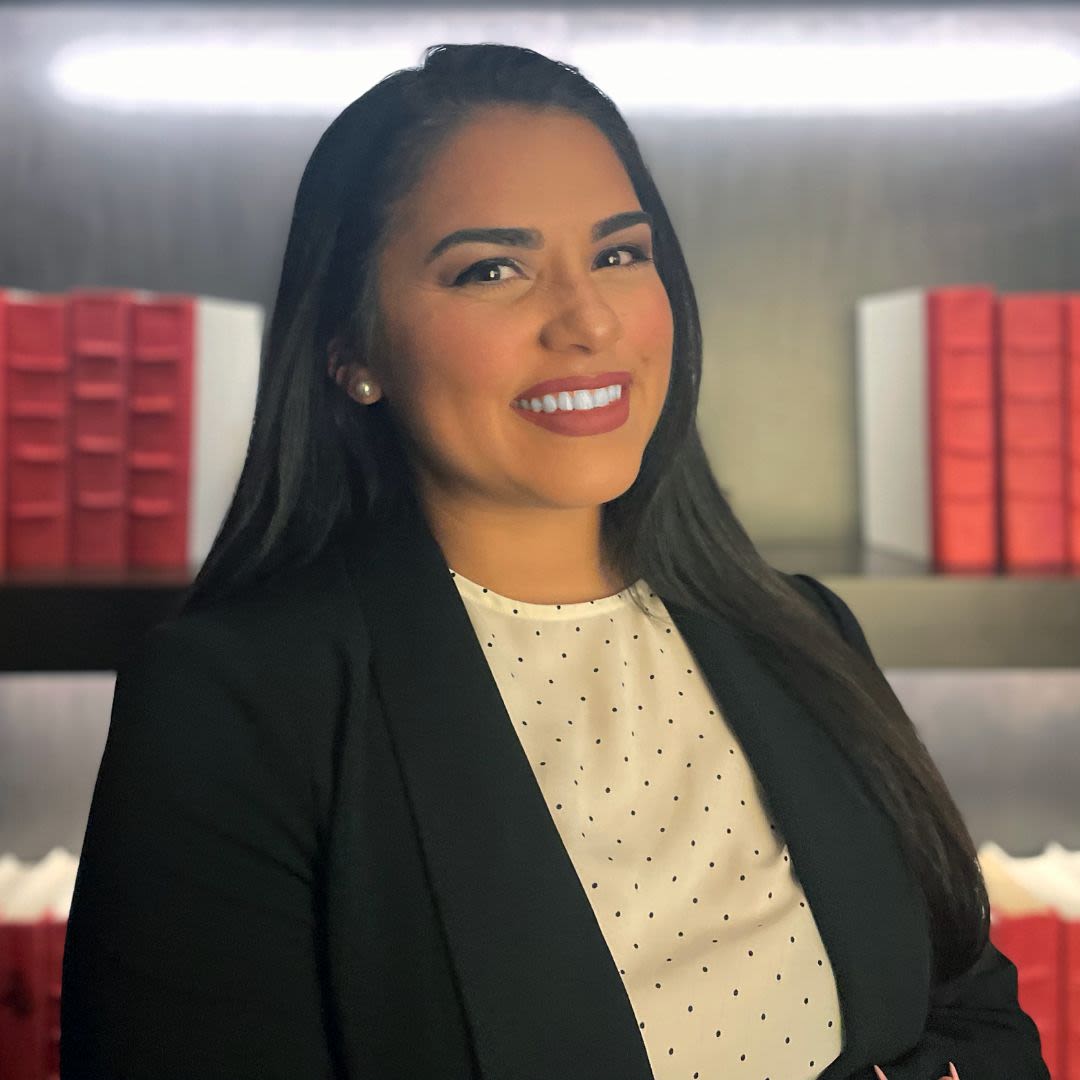
Pathways to Practice Pipeline: Building Bridges for HBCU Students to Legal Fields Lacking Diversity
By: Nicolle Londono, Florida Agricultural and Mechanical University College of Law
Nicolle’s project aspires to create a platform on LexisNexis legal careers that could interest participants in the pipeline. Nicolle’s platform would assist HBCU law students with internships and job placement.
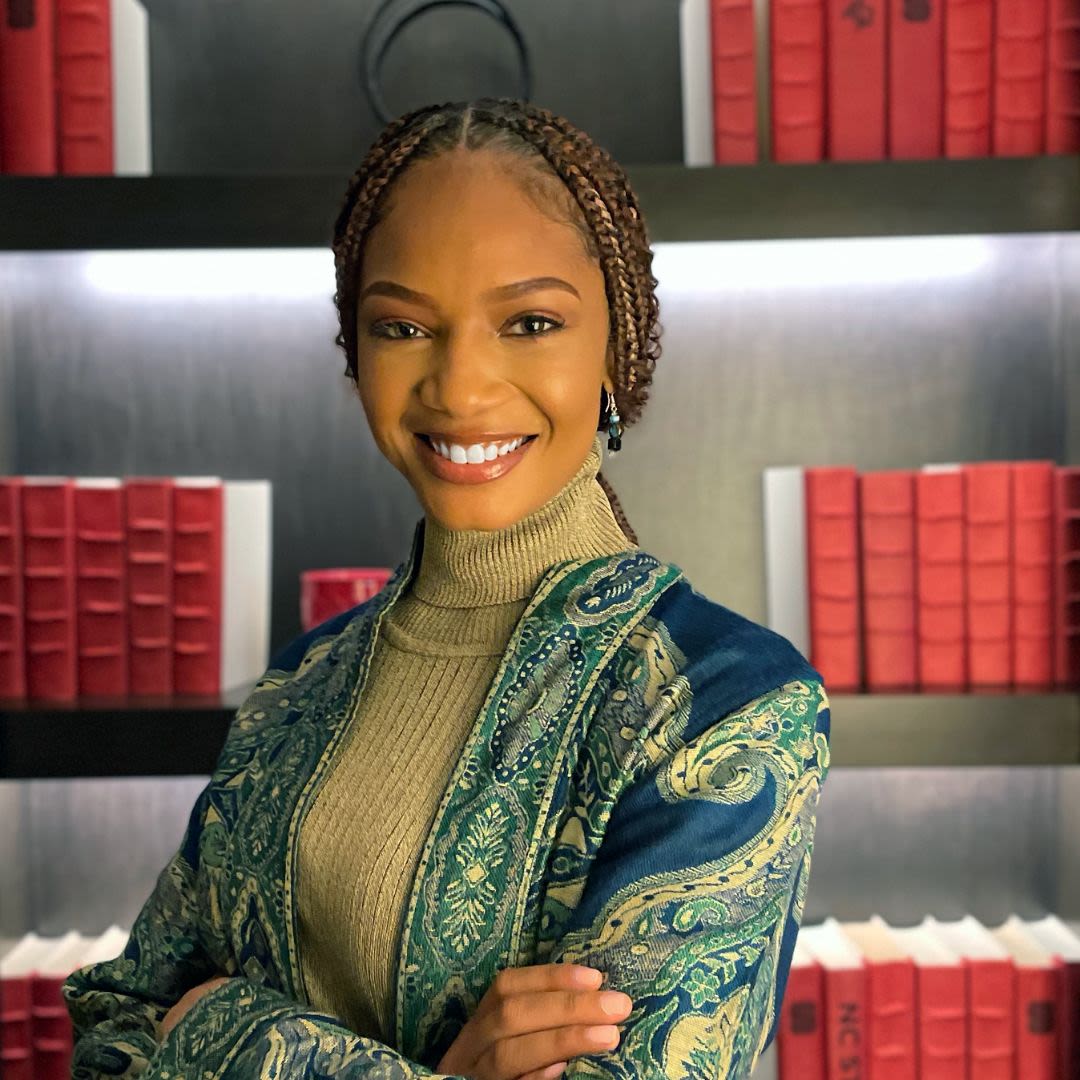
I, Too Sing America: US History in the Law
By: Alexus McNeal, University of the District of Columbia David A. Clarke School of Law
Alexus' project, “Hidden Gems of American history,” seeks to use the Lexis+ research tools to uncover the hidden gems of American history while using case law. Alexus’s research will begin from the time when the first ships sailed to the Americas during the transatlantic slave trade. Alexus believes by examining where we have been (our past history in the USA) and what has worked, we can find solutions to end systemic racism.
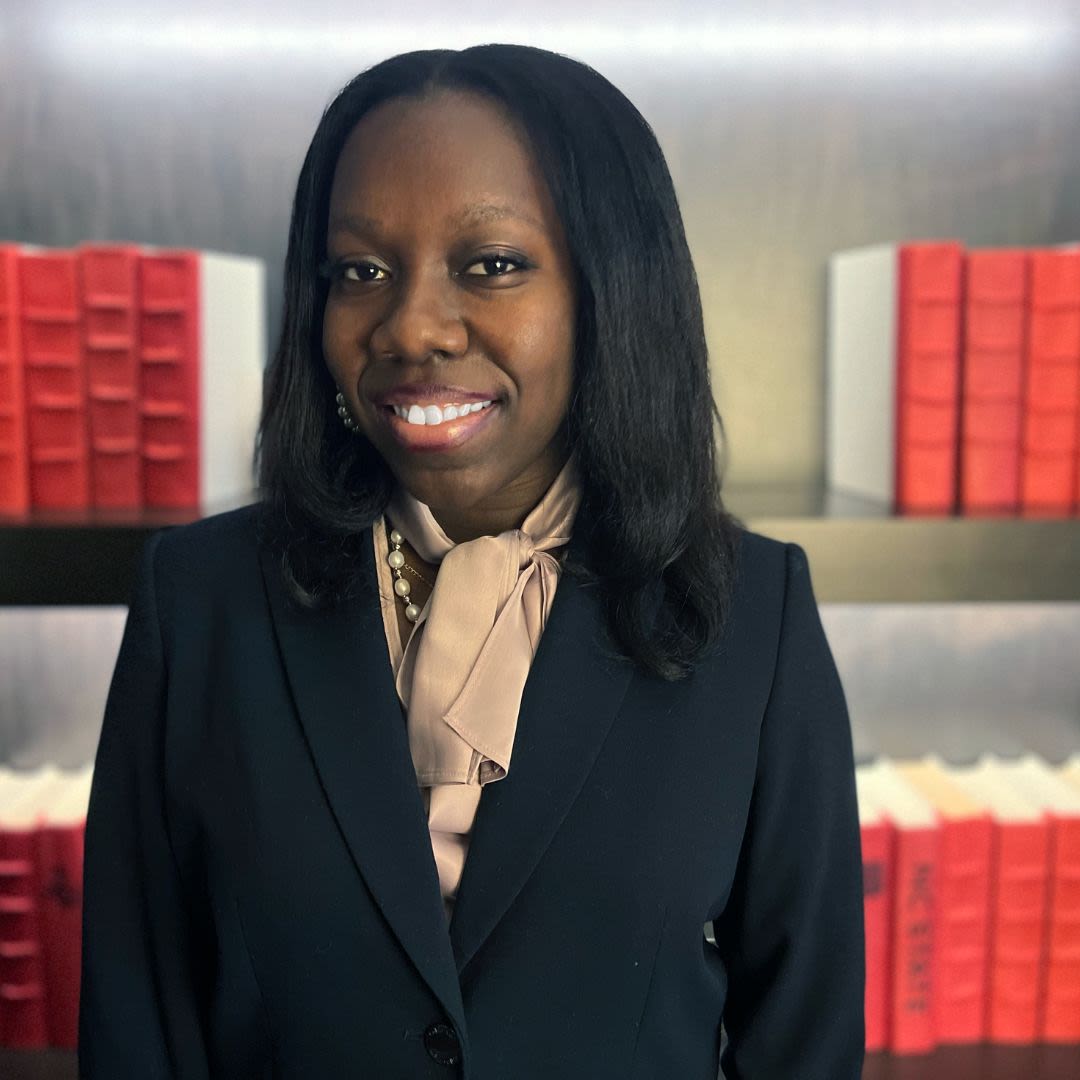
The McCleskey Act
By: Amari Roberts, Florida Agricultural and Mechanical University College of Law
Amari's project involves drafting a bill for the state of Georgia to abolish the death penalty.
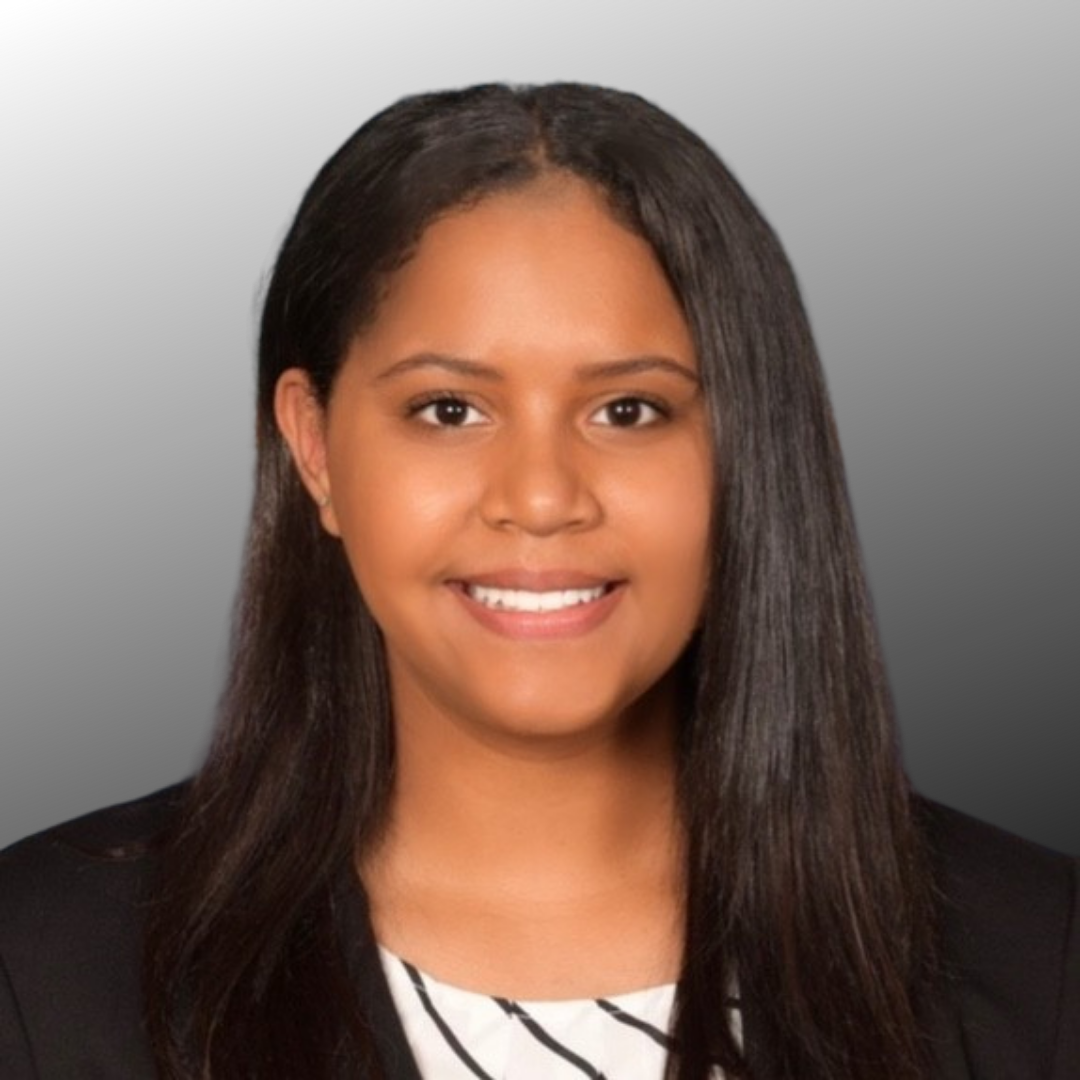
Heir Solution Toolkit: Building Generational Wealth by Protecting Black Property Ownership Through Wills/Estate Planning
By: Lauren Skarupsk, Southern University Law Center
Lauren Skarupsk’s project, “Heir Solution Toolkit: Building Generational Wealth by Protecting Black Property Ownership Through Wills/Estate Planning,” aims to provide a toolkit to assist African Americans with the resources necessary to plan for and maintain generational wealth.
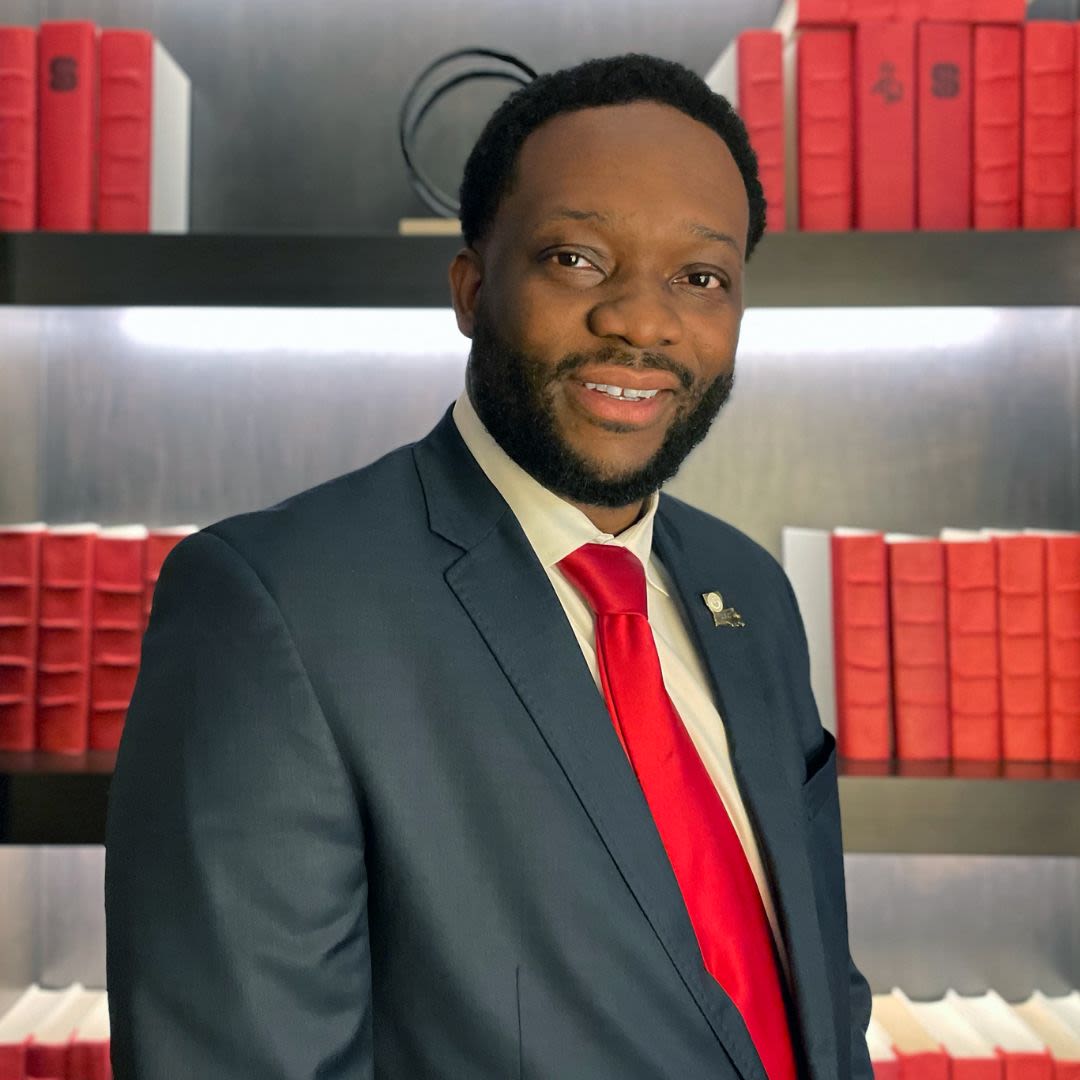
Jury Pool Selection: Transformation from Jury Wheel to Big Data Technology
By: Edrius Stagg, Southern University Law Center
Edrius' project, “Jury Pool Selection: Transformation from Jury Wheel to Big Data Technology,” focuses on data collection and the source lists utilized by states (voter registration lists, licensed driver lists, state income, or property tax lists) with a spotlight on the state of Louisiana. This project will also consider the benefits and risks for state court administrators to contract with Big Data companies to produce data that represents the racial and gender demographics of the jurisdiction, as well as class, age, geography, affiliations, etc.
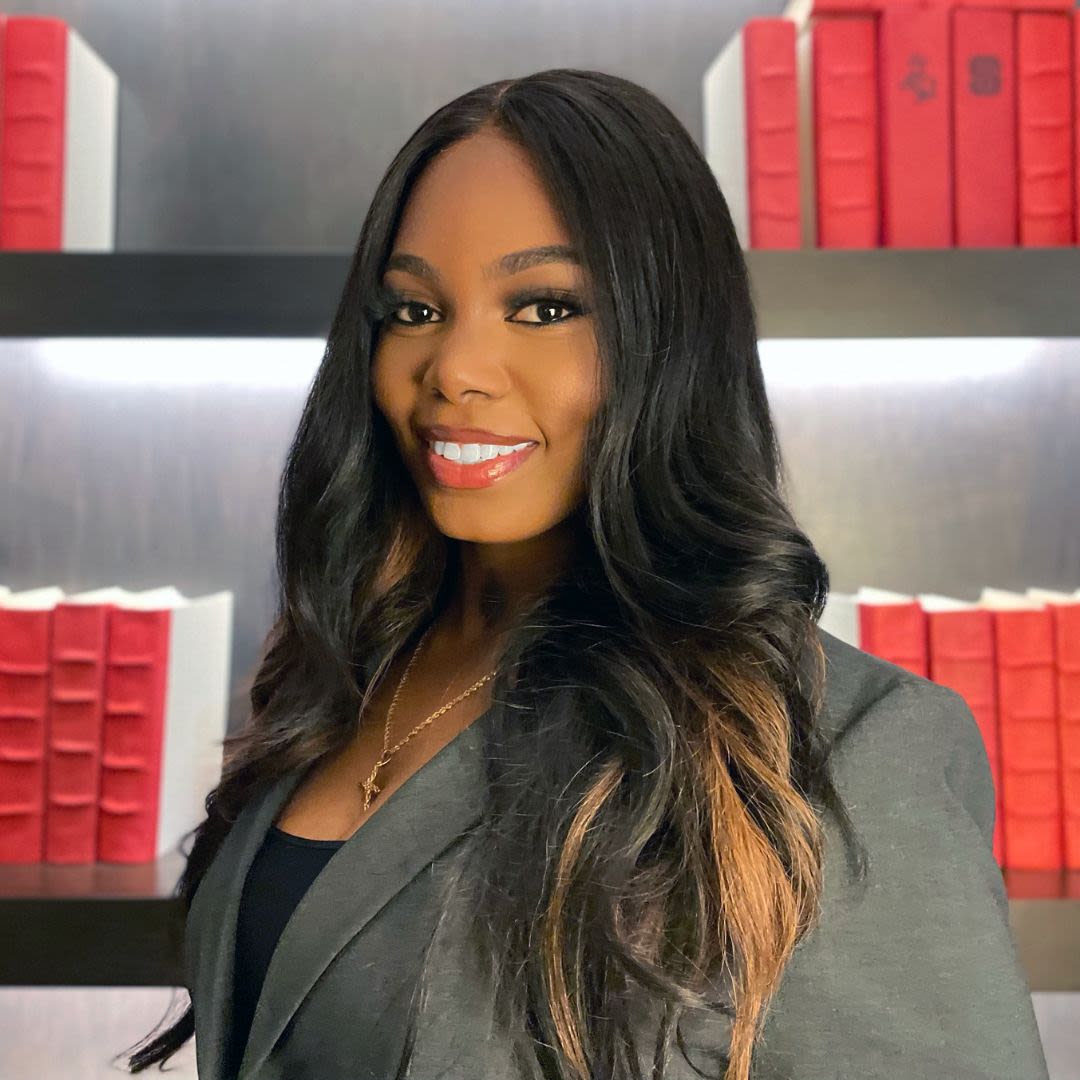
The Eighth
By: Talia Thomas, Howard University School of Law
Talia's project is a documentary to educate individuals about the Eight Amendment, the death penalty, and the death penalty’s effects on the criminal justice system, as well as issues involving habeas corpus and ineffective counsel. “The Eighth” seeks to expose the long history of systemic racism within our country’s capital punishment system. From sentencing eligibility to jury selection to appeal, the documentary focuses on how the right against “cruel and unusual” punishment is only reserved for some rather than guaranteed to all.
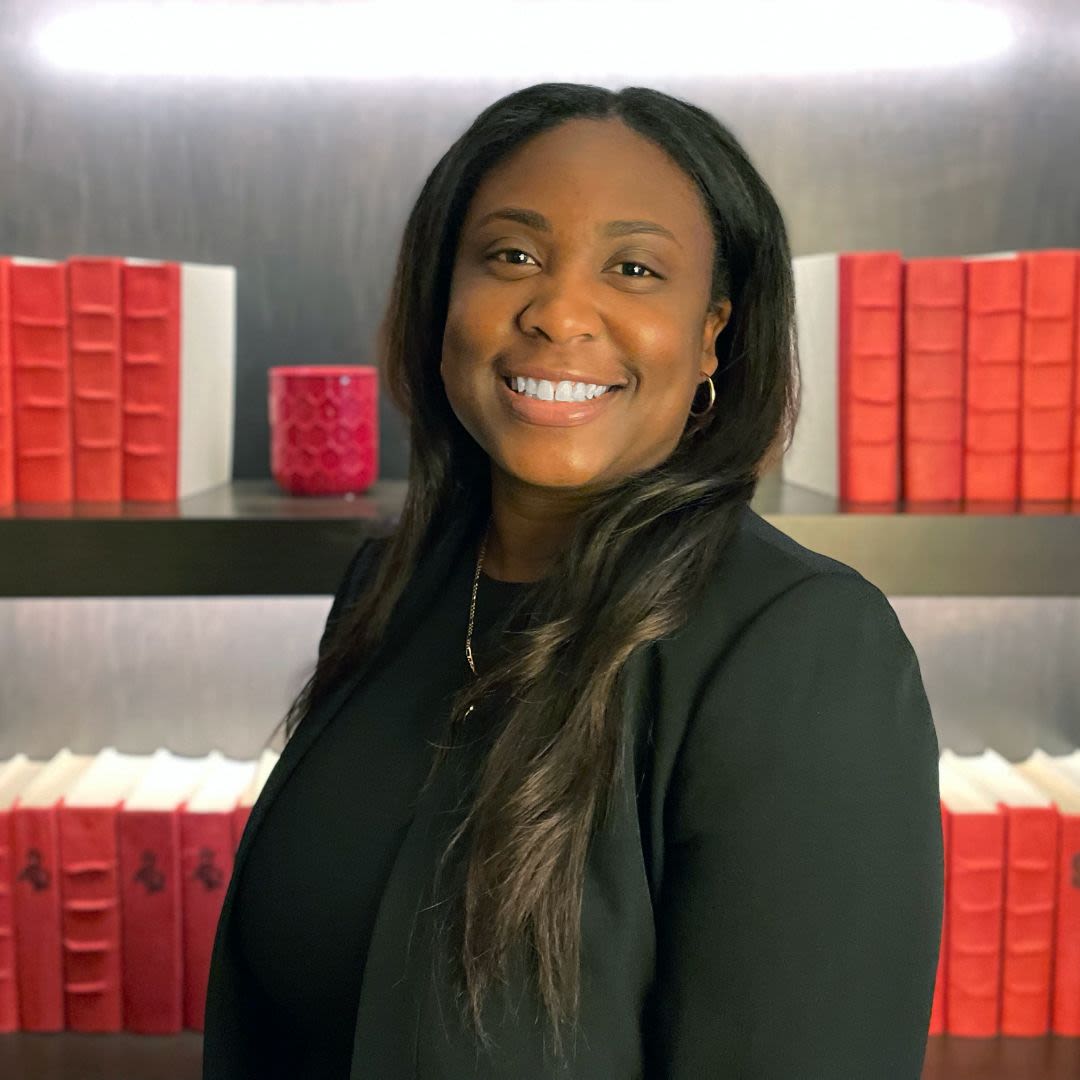
Umbrella: Reducing the Harms of Systemic Racism through Legal Education for Creative People
By: Zuri Ward, North Carolina Central University School of Law
Zuri’s project aims to help creators and entrepreneurs protect their intellectual property through the use of Lexis products.
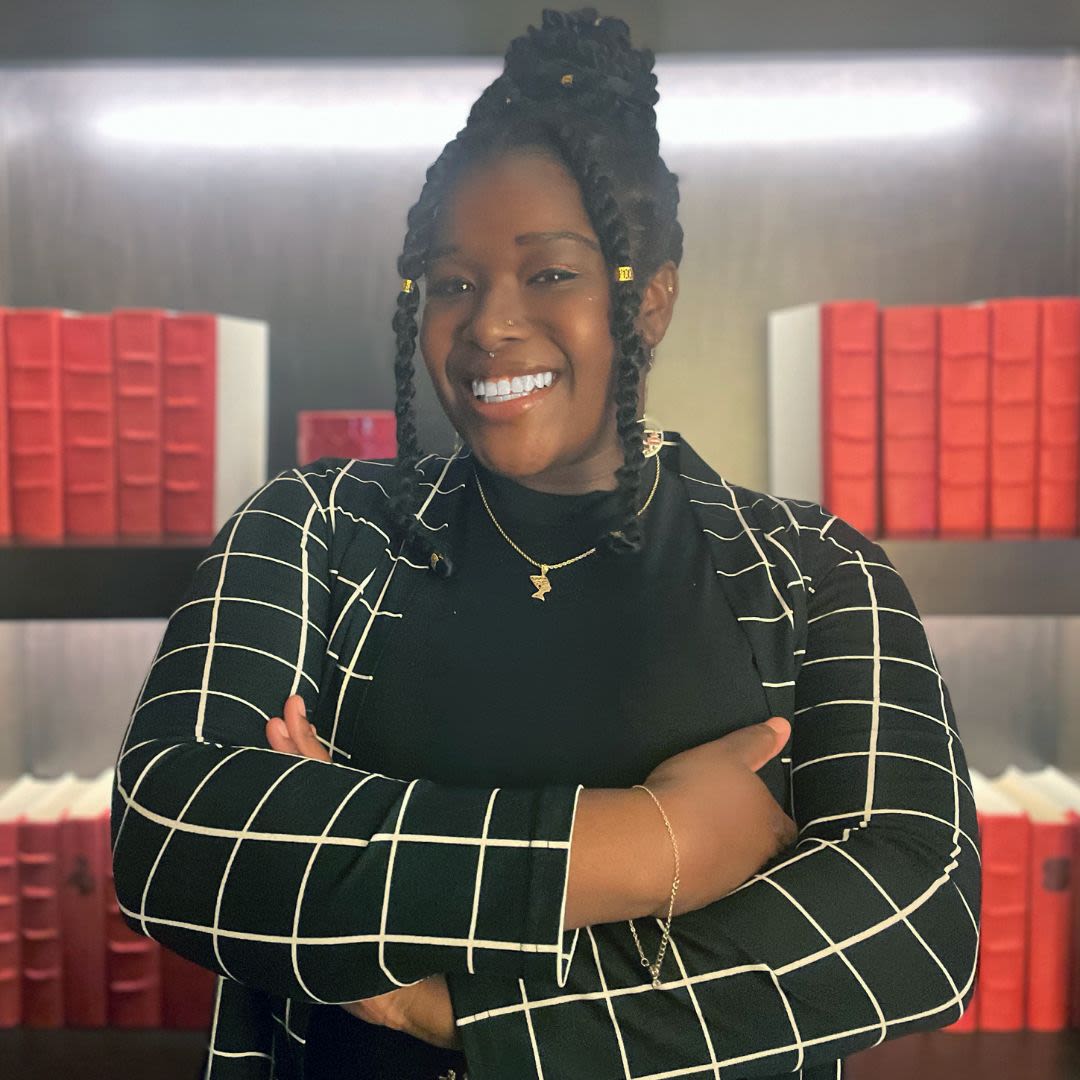
The Ten-Year Plan to the Bar (T-Bar)
By: Songo Wawa, University of the District of Columbia David A. Clarke School of Law
Songo’s project aims to provide legal education access to high school students through a ten-year plan to the Bar (“T-Bar”). Songo wants to jumpstart high school students’ accessibility by eliminating the two main obstacles: (1) financing higher education and (2) becoming competitive overall. The goal of T-Bar is to mitigate those obstacles.
“The retreat provided transparency and constructive feedback on my ongoing project. Furthermore, I was able to grow and learn how to be productive and comfortable in a legal networking atmosphere. Lastly, it was inspirational to be in a room with so much diversity, professionalism, and opportunity.”
Songo Wawa
University of the District of Columbia David A. Clarke School of Law

The Best is Yet to Come
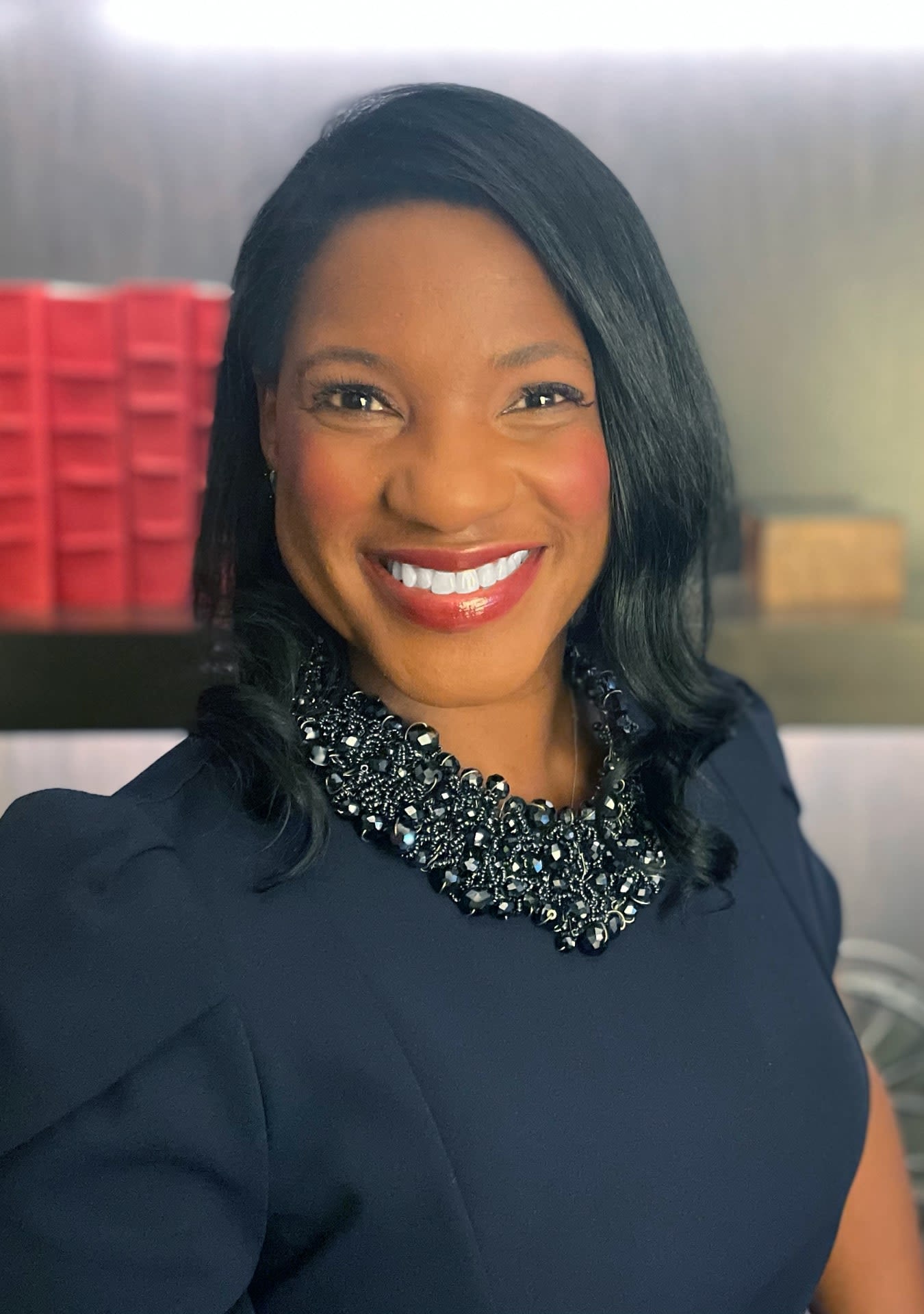
Ronda Moore, Chief Inclusion & Diversity Officer and Head of Global Talent Development
The nurturing and technical environment of the Retreat allowed the Fellows to formulate a solutions-based plan for their projects. Setting the tone for the Fellows to comprehensively lay out their plans was the mesmerizing Retreat opening and Keynote Speech, “The Best is Yet to Come”, offered by Ronda Moore. Ronda shared, “. . . believe your best your days are ahead of you…,” and set the tone for the three-day reflection. The power of Ronda’s words came through in the candid discussion of her experience as a high school student and feeling inadequate and lacking confidence and her transformation. Ronda expertly engaged the students by engaging with them in a “practicing gratitude & generosity” portion of the exercise. Ronda’s attitude of gratitude resonated with the Fellows, as I observed the Fellows lean in to feel her empowerment. Ronda next spoke of creating a life of intention, impact, leadership, and legacy. Ronda’s message was for the students to believe their best days are ahead of them. Reflect and believe the best is yet to come.

Ronda Moore, Chief Inclusion & Diversity Officer and Head of Global Talent Development
Ronda Moore, Chief Inclusion & Diversity Officer and Head of Global Talent Development
“I would describe my experience at the AAN LNROLF Fellowship Innovative Retreat as immeasurable and thought-provoking. It was clear from the very first day that Lexis Nexis genuinely believed in us as research Fellows and were purposeful in making sure that we were fully equipped with the tools and abilities needed to become impactful lawyer leaders. I walked away from the retreat with a stronger sense of fulfillment and passion in the work that I am doing with the foundation. If I could do it again, I would in a heartbeat!”
Brianna Joaseus
Southern University Law Center

Technology and Innovation Expo
Ronda’s powerful words set the tone for the Innovation Expo, organized by Jeff Pfeiffer, Chief Product Officer LNNA, and his talented team. During the Lexpo, the Fellows were exposed to and educated on, the comprehensive LexisNexis products that will assist them with their project by using the tools needed to help eliminate systemic racism. The Technology and Innovation Expo included sessions to inform students about the LexisNexis products such as Lexis+, Practical Guidance, StateNet, Law360, and Newsdesk, for example.
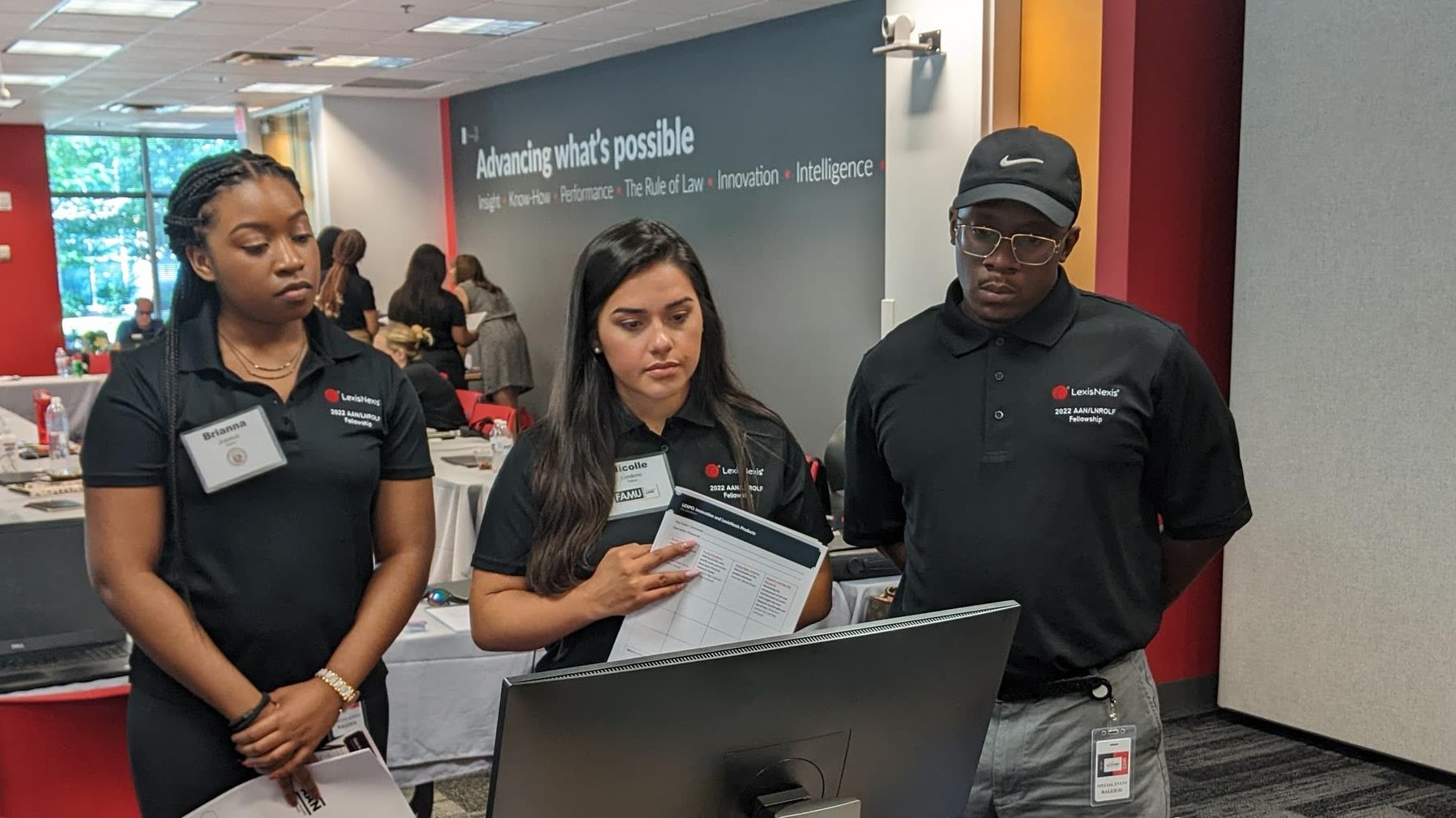
With the power of Ronda’s words and the technology of the Innovation Expo, the theme of the Fellowship emerged to the light. Words are important, and what you say matters, but how do we put those words into action for the benefit of disenfranchised people? The retreat offered this power. For example, Brianna Joaseus’ project to eliminate housing discrimination would engage a Lexis product to provide transparency regarding the appraisal process and mitigate bias in the appraised value of homes for African American homeowners and buyers.
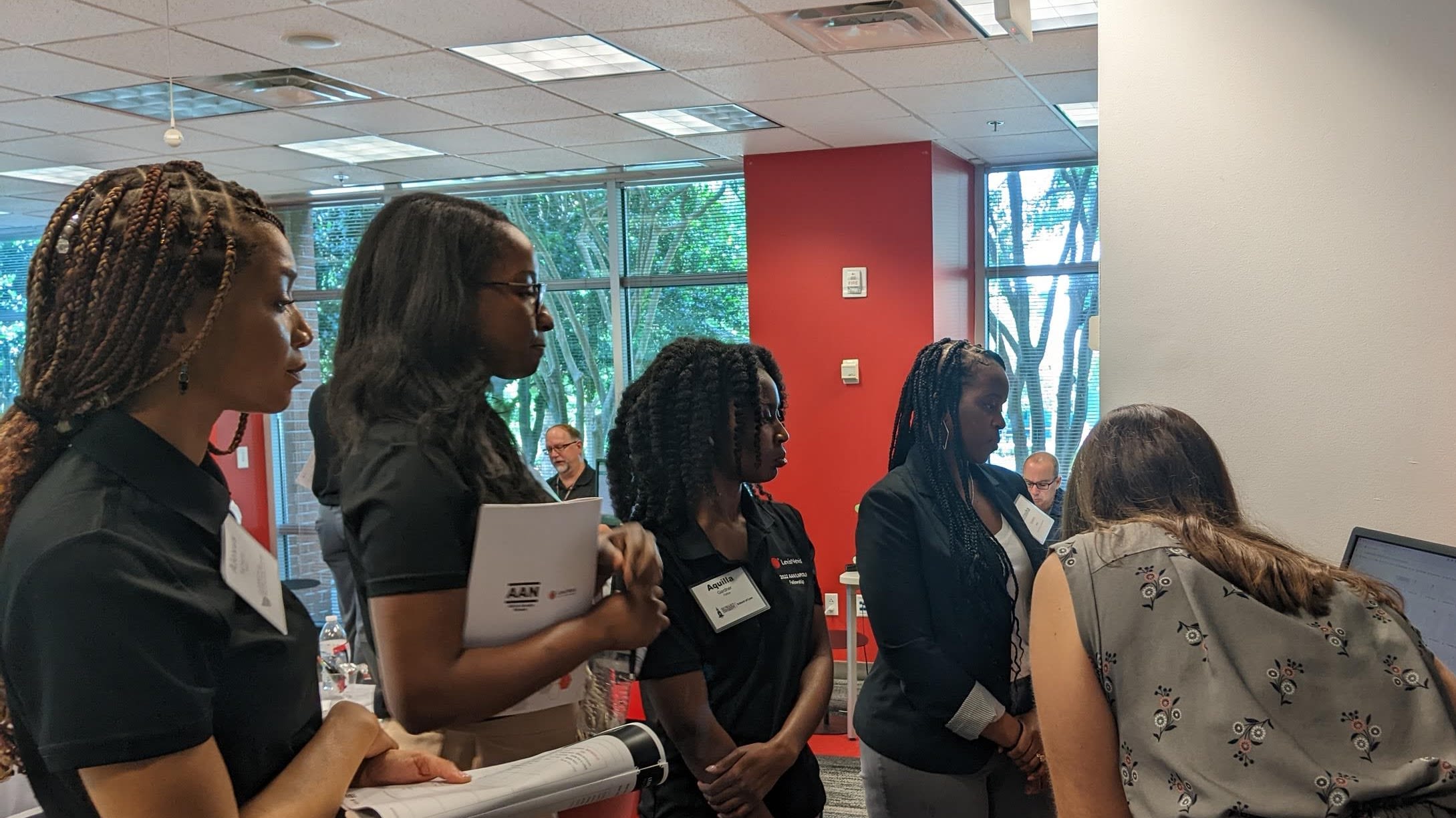
Golf Outing
Representation matters, so the Retreat’s next stop involved a golf outing and the Fellows and mentors dining at the Lonnie Poole Clubhouse in the Terrace Dining Room for lunch. The day continued with the Fellows and mentors practicing their golf swings with an instructor at the driving range. It is important to see black faces in spaces, such as the golf course, and make them feel at ease. It is also important to introduce black professionals to life-long sports that are good for mental health and business acumen. Black faces should be represented where many law firms and other business deals are conceived. The Retreat not only focused on the technical ways to eliminate systemic racism, but it also offered opportunities for the Fellows to engage in spaces, like the golf course, where people of color have been traditionally excluded.
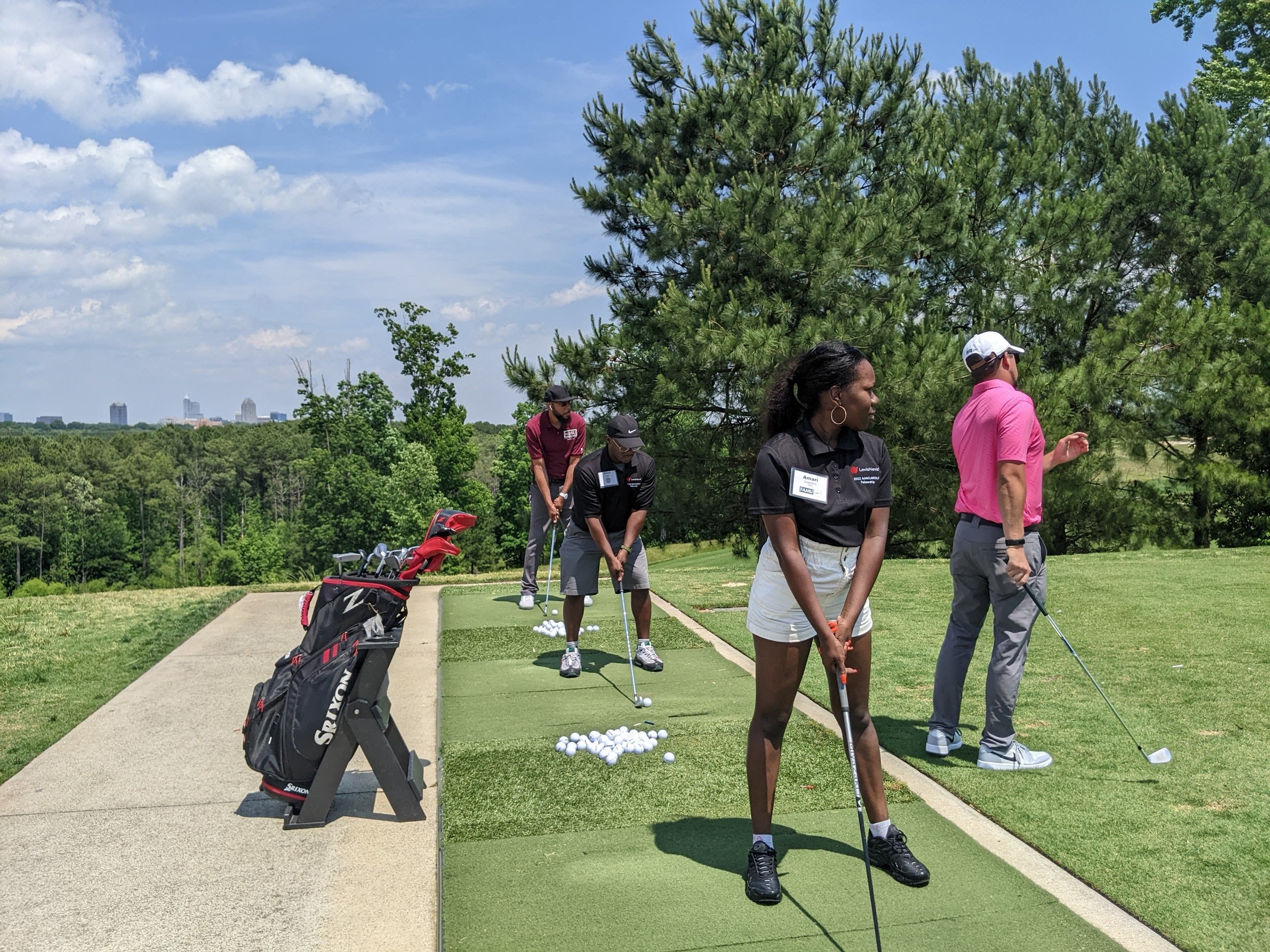
Even as late as the 1990s, such golf course exclusionary policies were still in place in parts of the country such as Birmingham, Alabama. For example, it was impossible for an African American to have a Membership at Shoal Creek Country Club, where there were unwritten policies in place barring blacks from membership and from being guests of the country club. African American city councilor, William Bell, protested the unwritten policy and suggested that any city money used in the advertisement of a PGA tournament should be prohibited by the city due to formal or informal racial discrimination. Many deals take place on the golf course, and many financial opportunities were denied to African Americans because they were not allowed on the golf course or to be a part of a country club. African Americans have come a long way. Now, African Americans are allowed to be members and guests at golf clubs and country clubs throughout the country. The policies that were once in place stopping African Americans from becoming members of the golf clubs are just another battle in the war that we are fighting to combat systemic racism until its elimination.
The Fellows also participated in an excellent wine tasting experience, so they will be prepared wherever they go in the future.
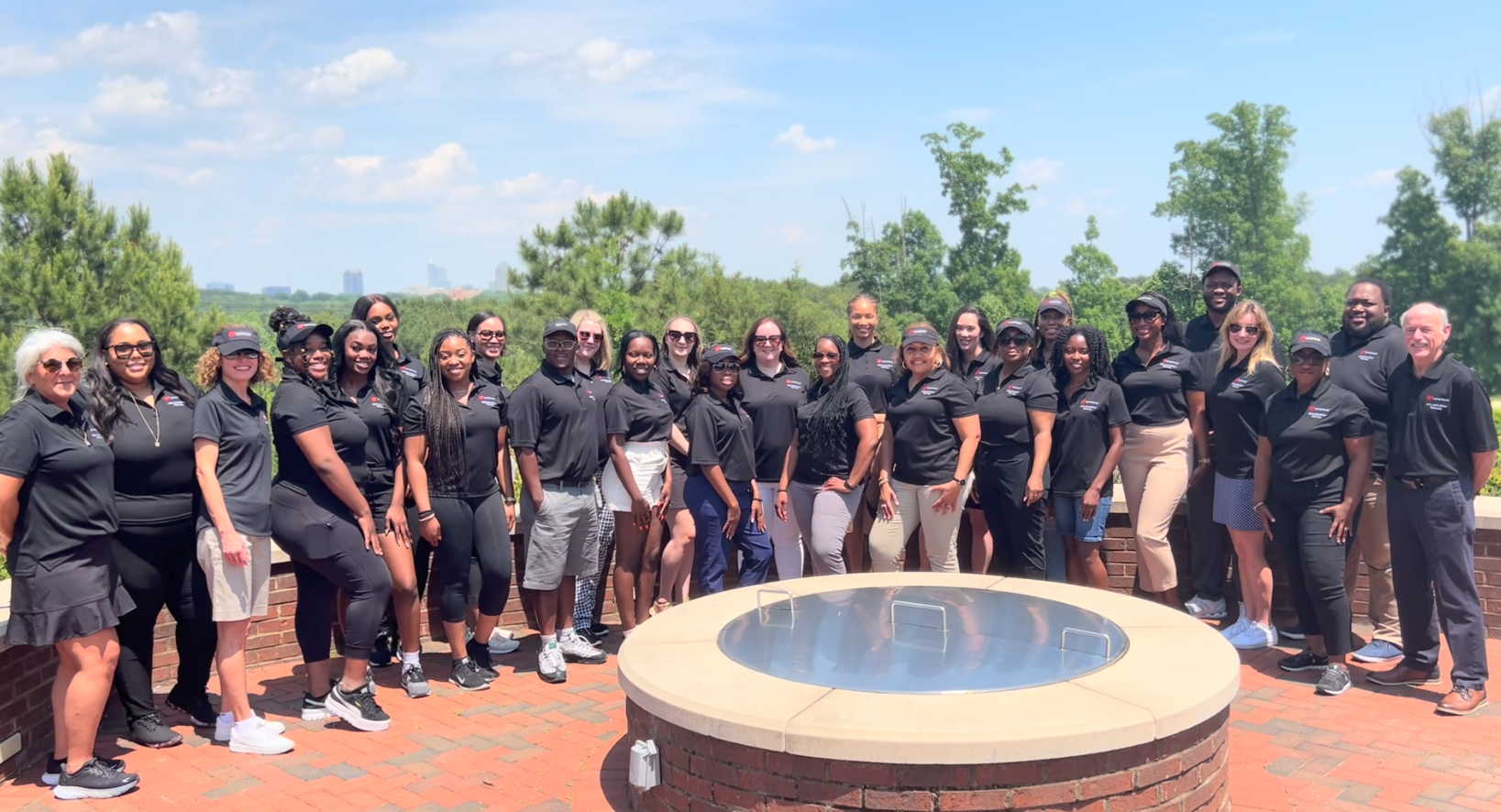
Advocates Session
The theme of representation matters was highlighted on Friday during the “Career Panel: Attorney as Advocate and Activist” that was moderated by Natasha Newberry, LexisNexis Legal and Professional Director & Senior Corporate Counsel. Ms. Newberry asked the panel to consider, “How do you stay resilient?” She was joined by panelists Candance Blydenburgh (Trial Attorney and Partner at McGuireWoods), Donald Corbett (Associate Professor of Law at North Carolina Central University School of Law), Kimberly Maney (Assistant General Counsel and Head of GSK’s Global Contracting Organization), and Tamika Henderson (Special Deputy Attorney General at the North Carolina Department of Justice). Ms. Maney spoke of the value of being comfortable with being uncomfortable. She also shared her thoughts on having a personal “Board of Directors” to support individuals throughout their careers and to offer feedback. Ms. Blydenburgh spoke about how to navigate pushback. Stating that if there were pushback for a cause, you should ask the employer why and discuss and find out why they hold a particular position about a matter. Mr. Corbett instructed the Fellows that before they begin advocating for others, to ensure that they are competent attorneys with the necessary experience. He also mentioned the value of punctuality, and even being early, because some of the more important conversations happen before the meeting starts. Ms. Henderson spoke about resilience and the ability to be gracious, and honor small changes made.




“The Lexis Nexis Rule of Law Foundation and African Ancestry Network has given me both a voice and a platform to create true change in our legal system. Through education, empowerment, and networking I have been able to connect with powerful like-minded individuals that want to pursue and push the agenda of diversity and inclusion further. During the Fellowship retreat, I learned that through scholarship, networking, and an amazing system of support, such as those in LexisNexis, true change can occur. Change may not occur overnight, and some may choose to not participate, but together we are powerful, we are determined, we are passionate, and we are professional; change will come.”
Nicolle Londono
Florida Agricultural and Mechanical University College of Law

Looking Ahead
In the days ahead, the Fellows will continue their research and writing their legal advocacy papers to craft solutions to eliminate the evils of systemic racism. The Fellows have also begun internships at leading law firms and institutions, where their faces provide hope to all for a better America. Having programs like the Fellowship that AAN LNROLF has created nurtures an organizational culture to eliminate systemic racism, allowing us all to check in and lean in together. With the collective force of the Fellows, mentors, and allies, we will continue to combat systemic racism as we keep in mind Ronda Moore’s profound hope and supportive words: “The Best is Yet to Come.”
A Special Thanks
We would like to thank the Editor-in-Chief and Inaugural Cohort member, Feven Yohannes, and the staff of the Howard Human & Civil Rights Law Review for their input with the 2022 legal advocacy papers. You can view past issues of the Howard Human & Civil Rights Law Review, here.
You can view the Inaugural Cohort’s advocacy papers, here.

